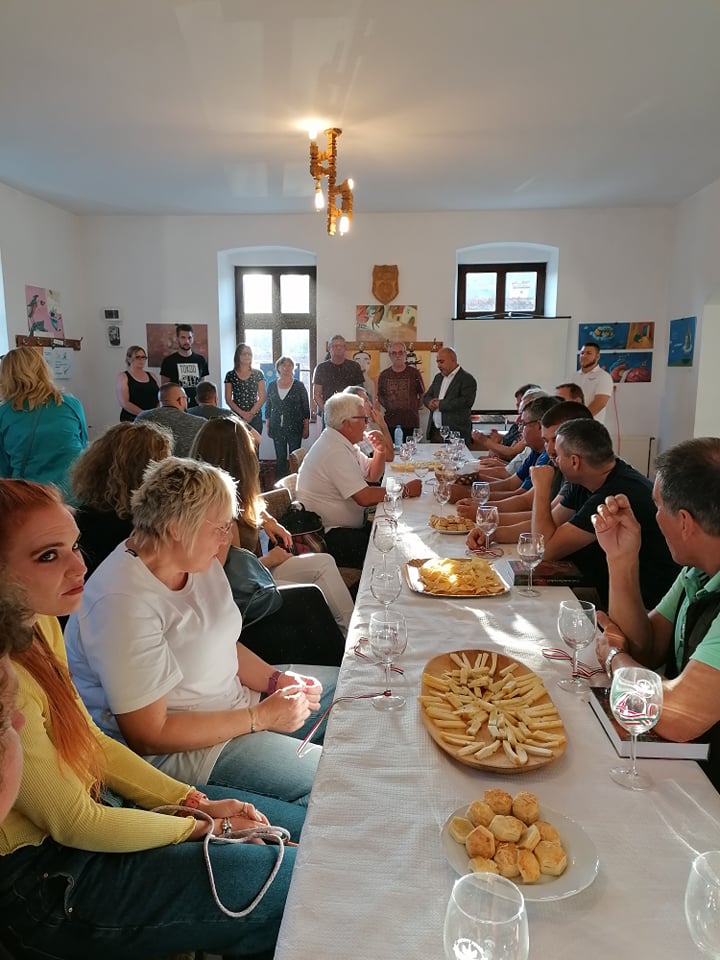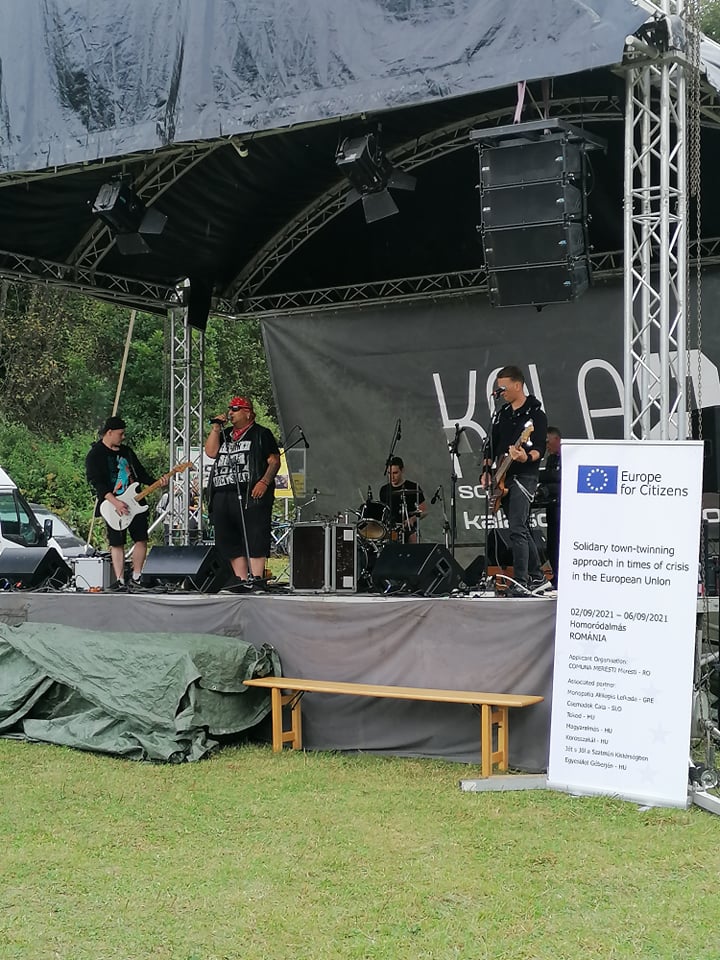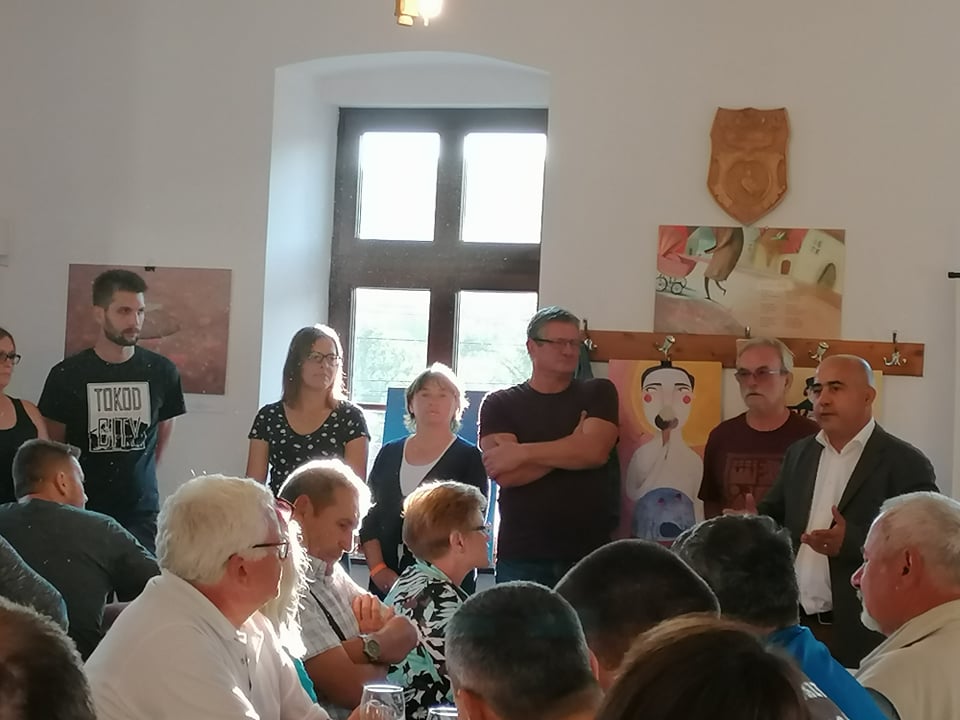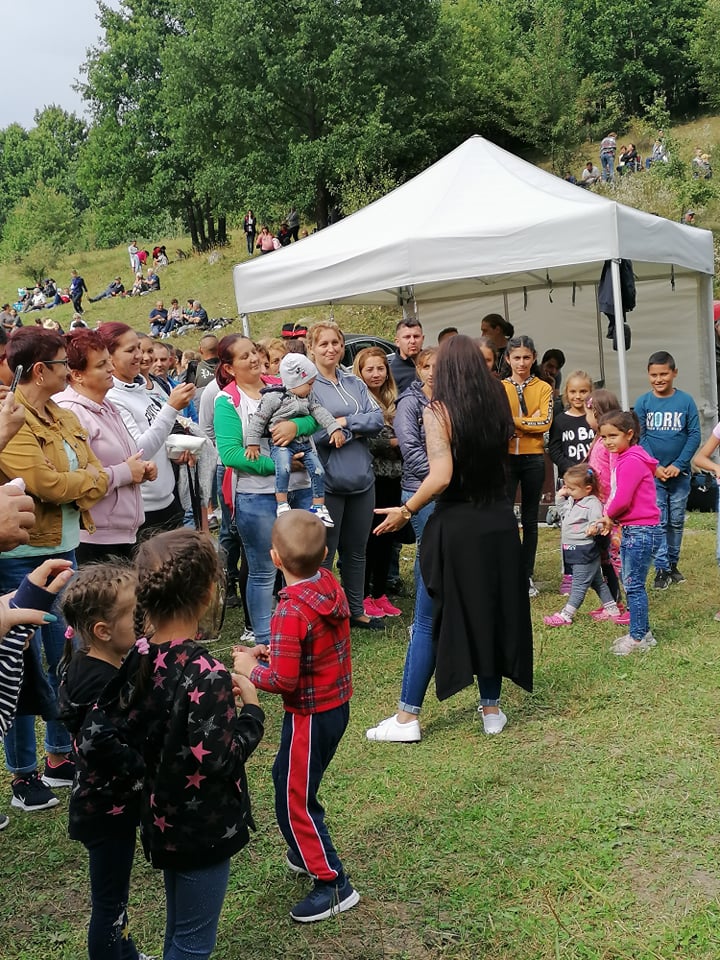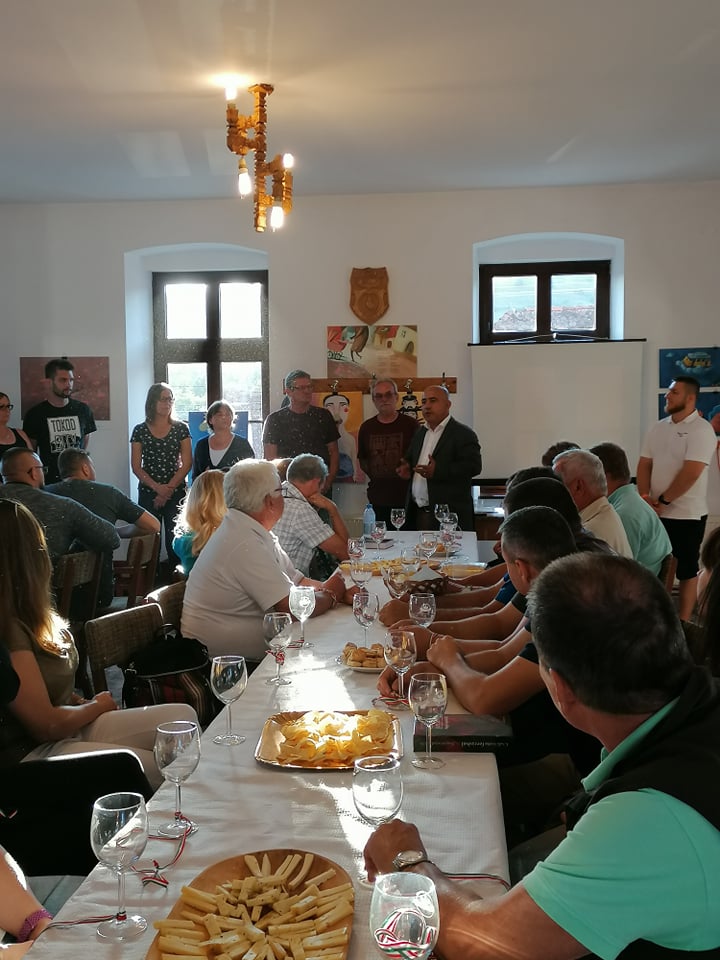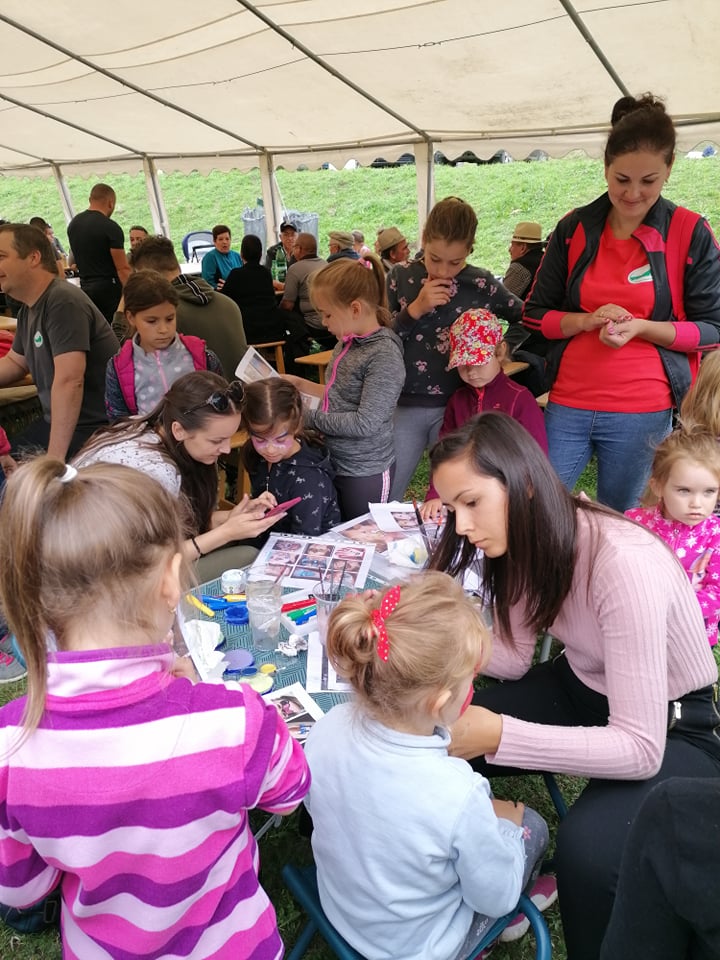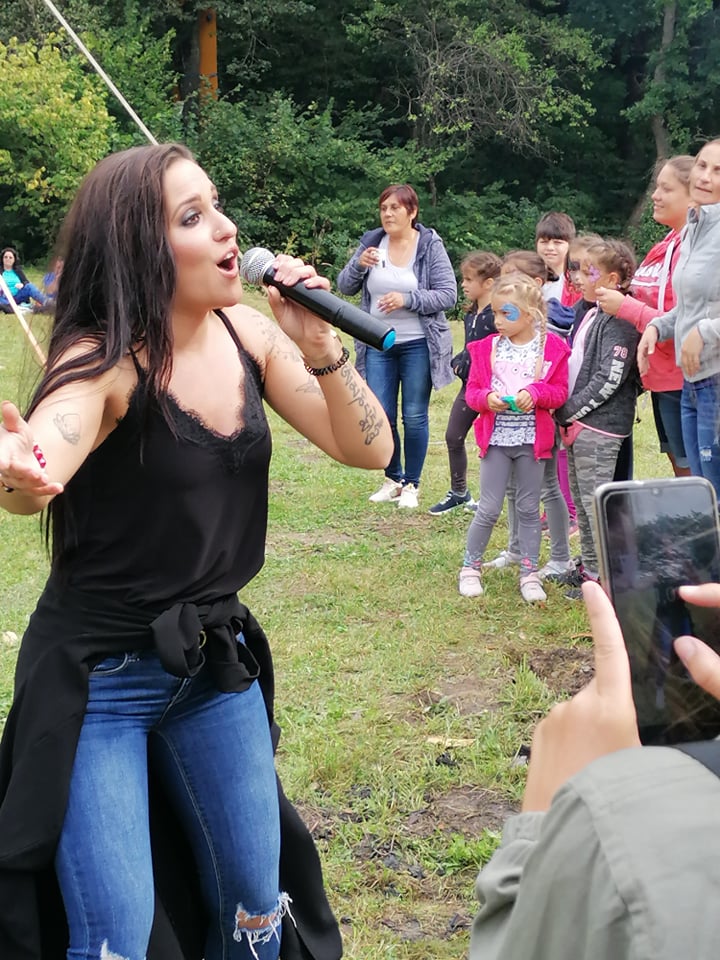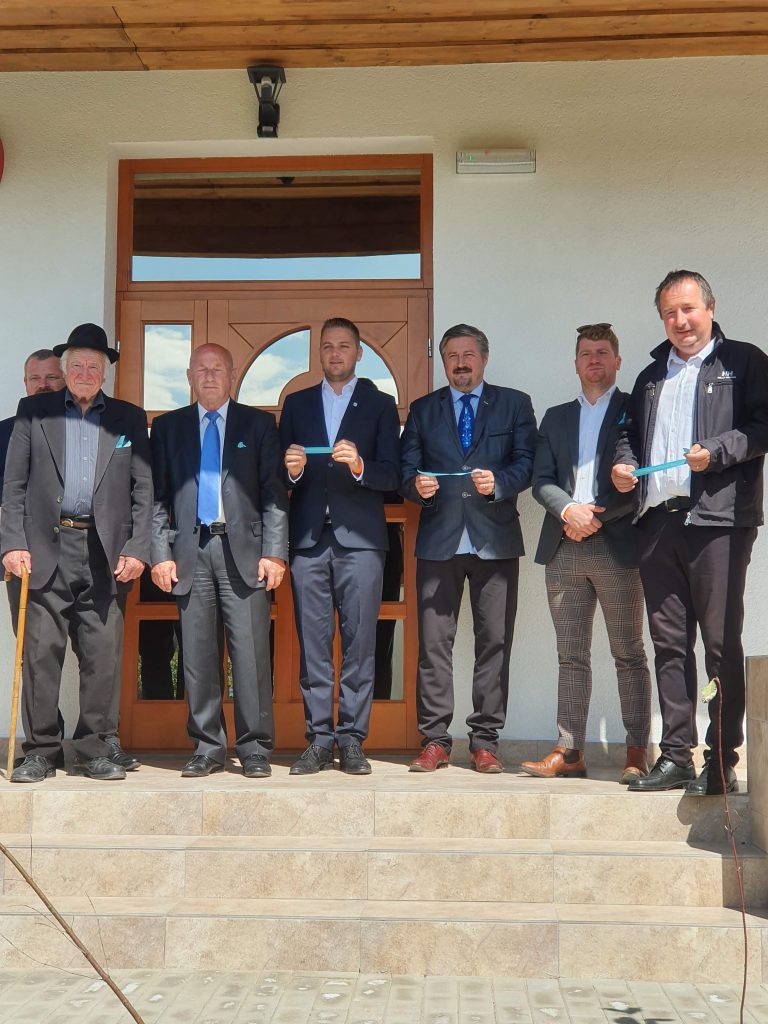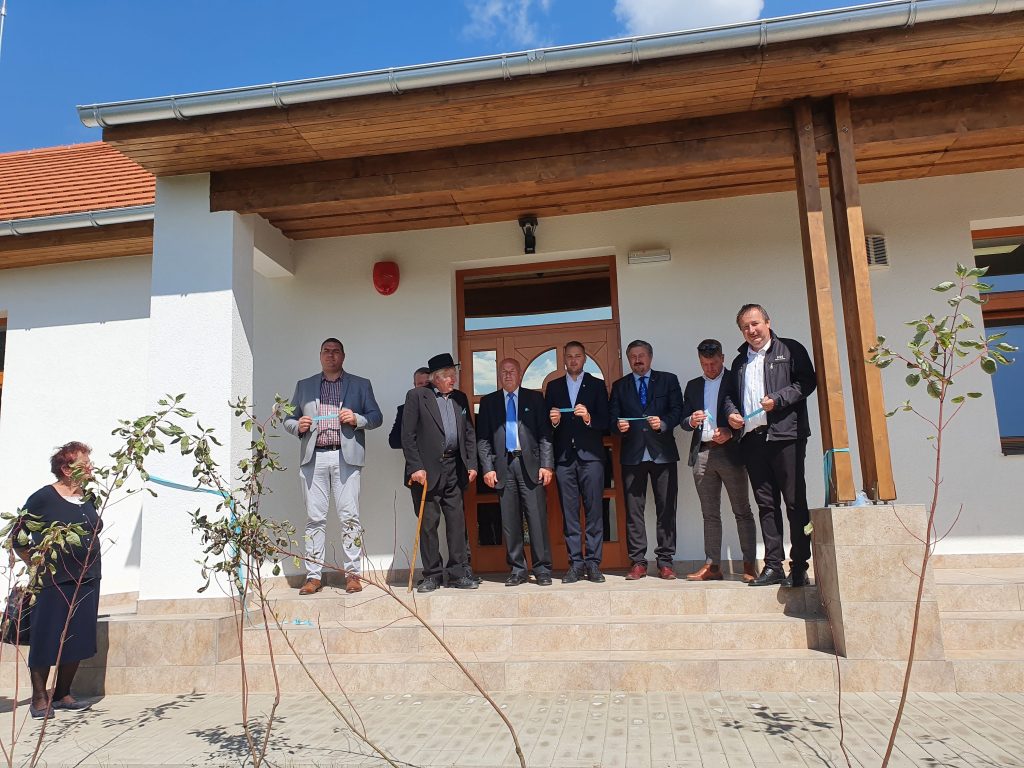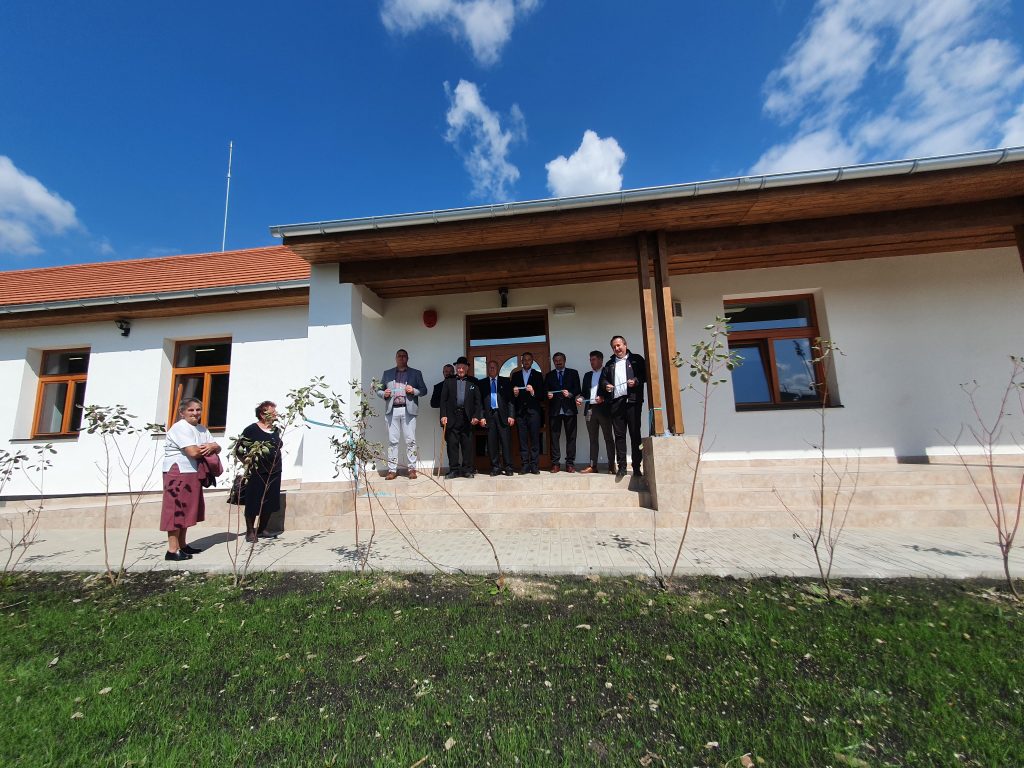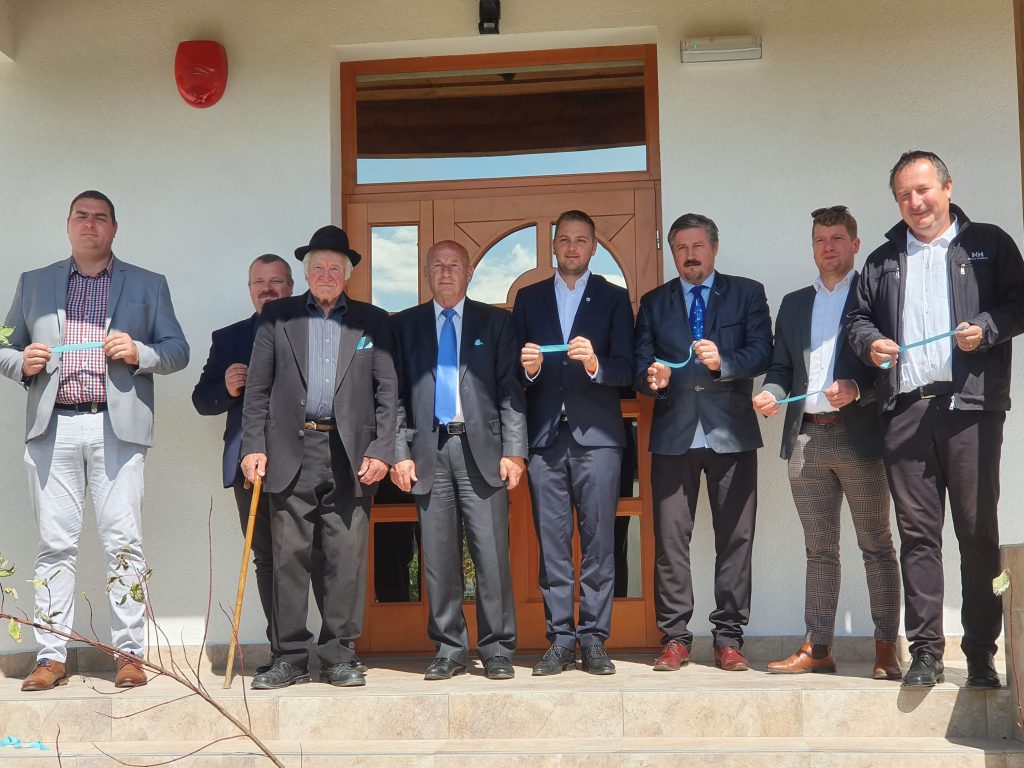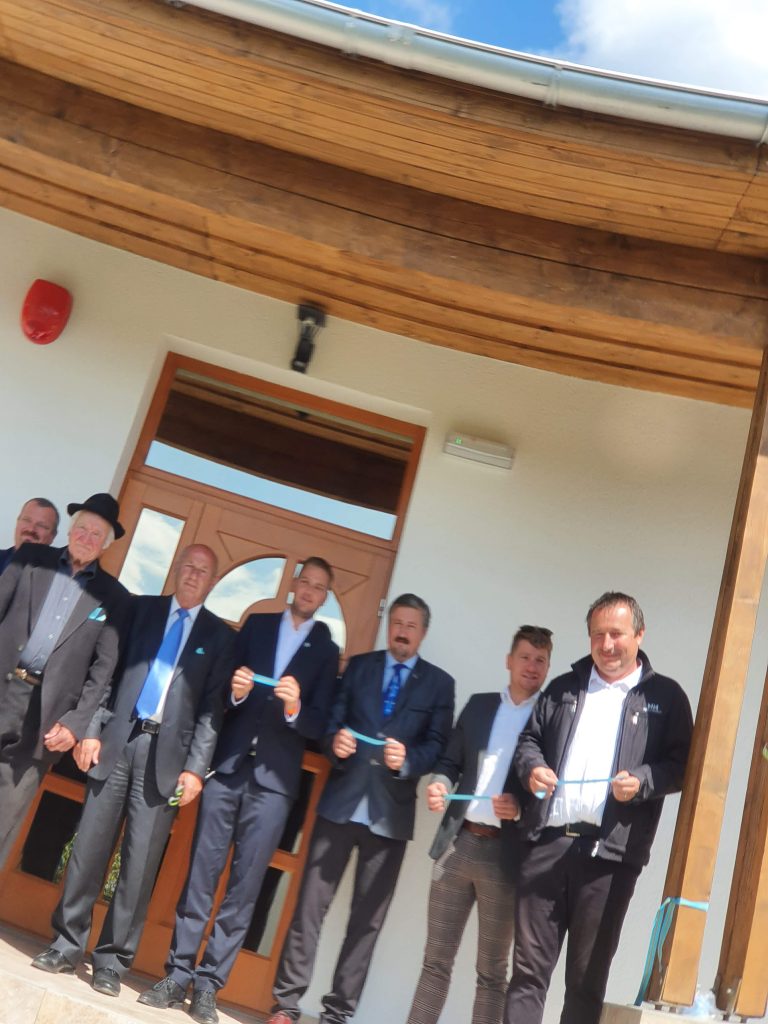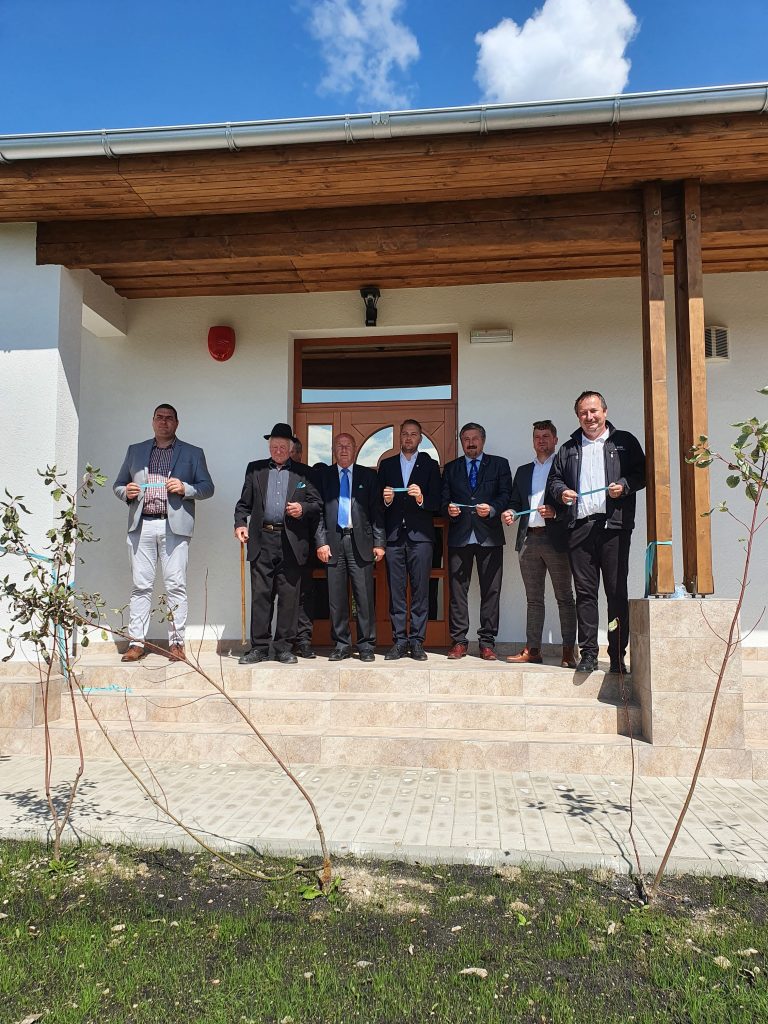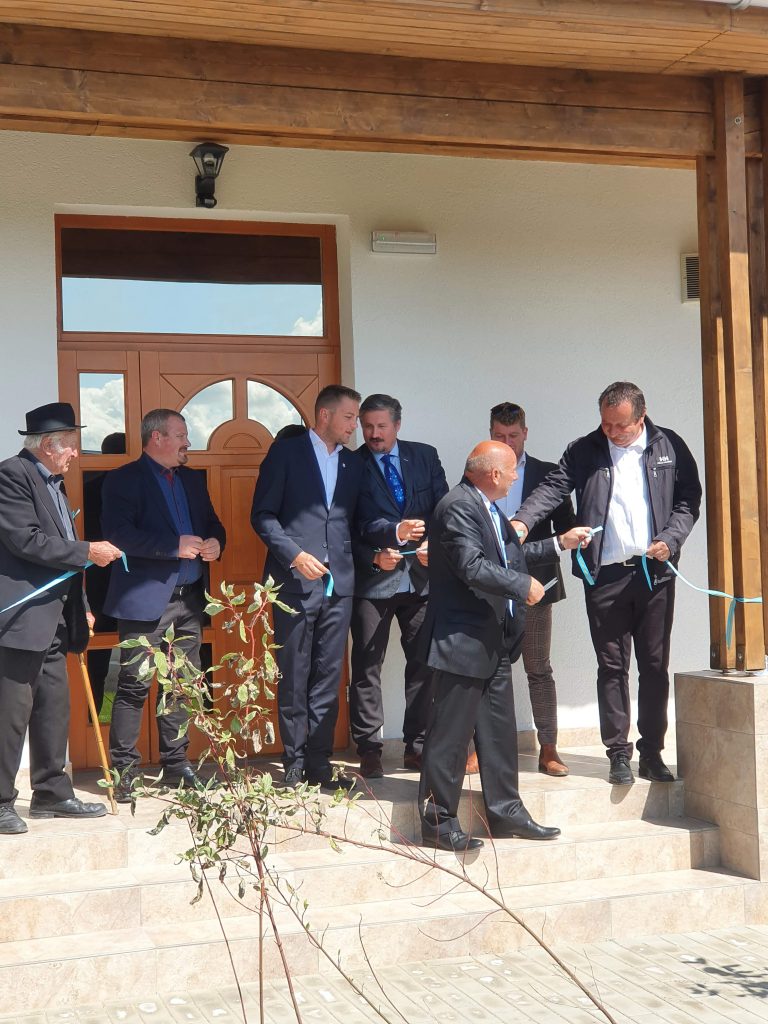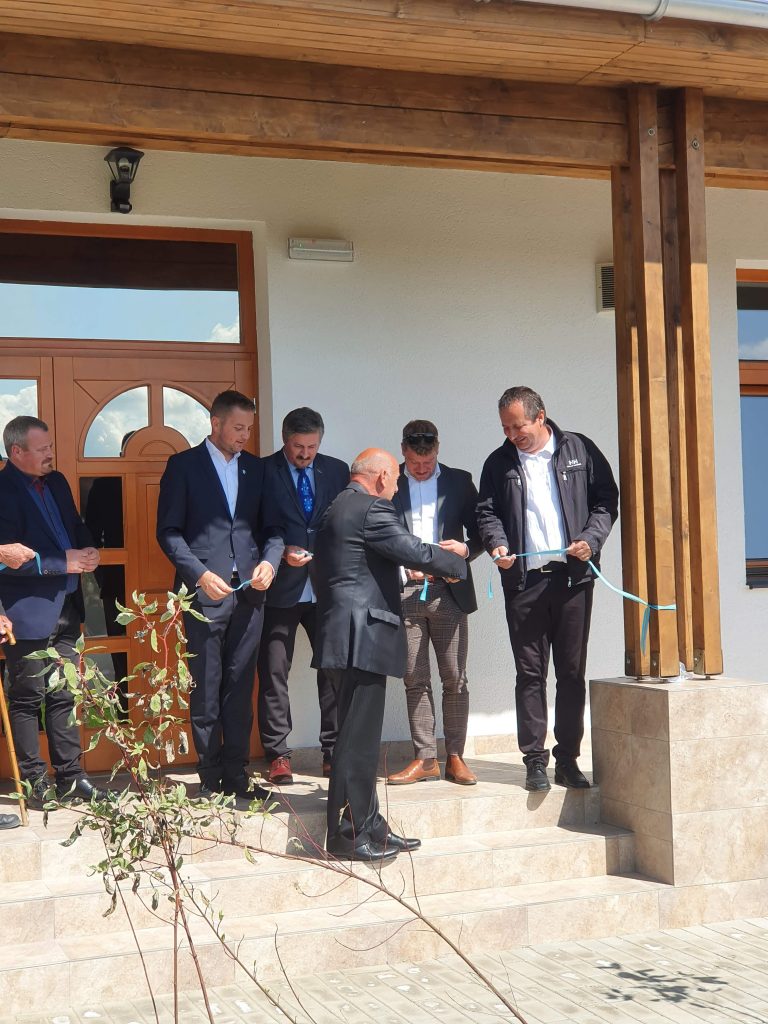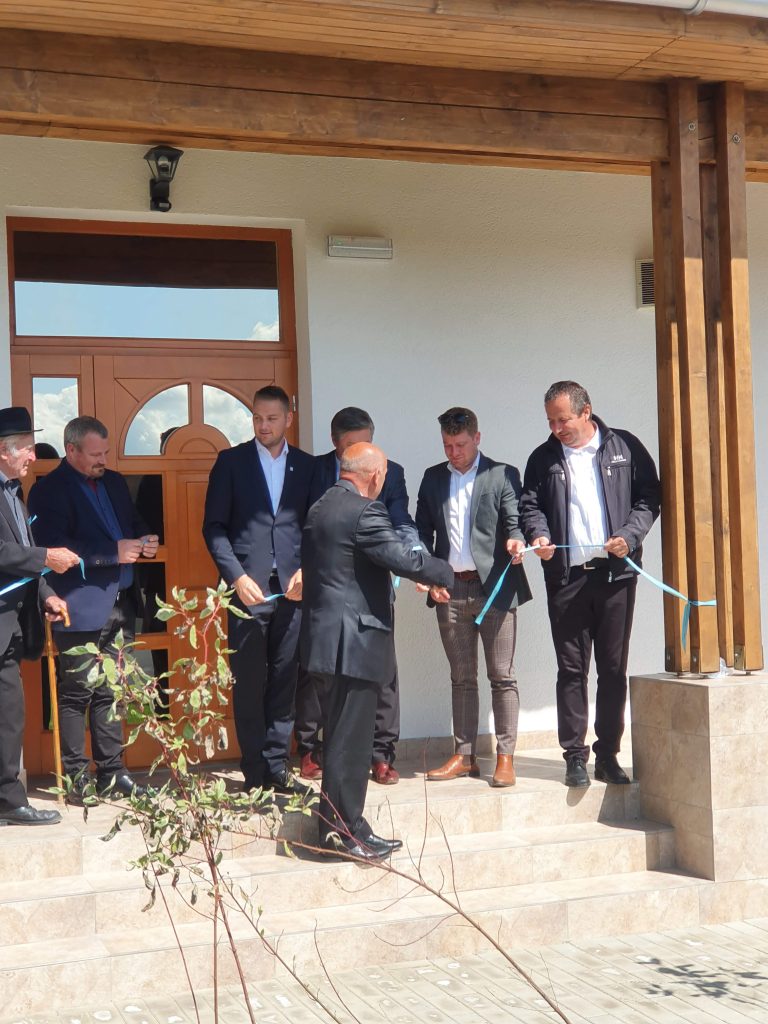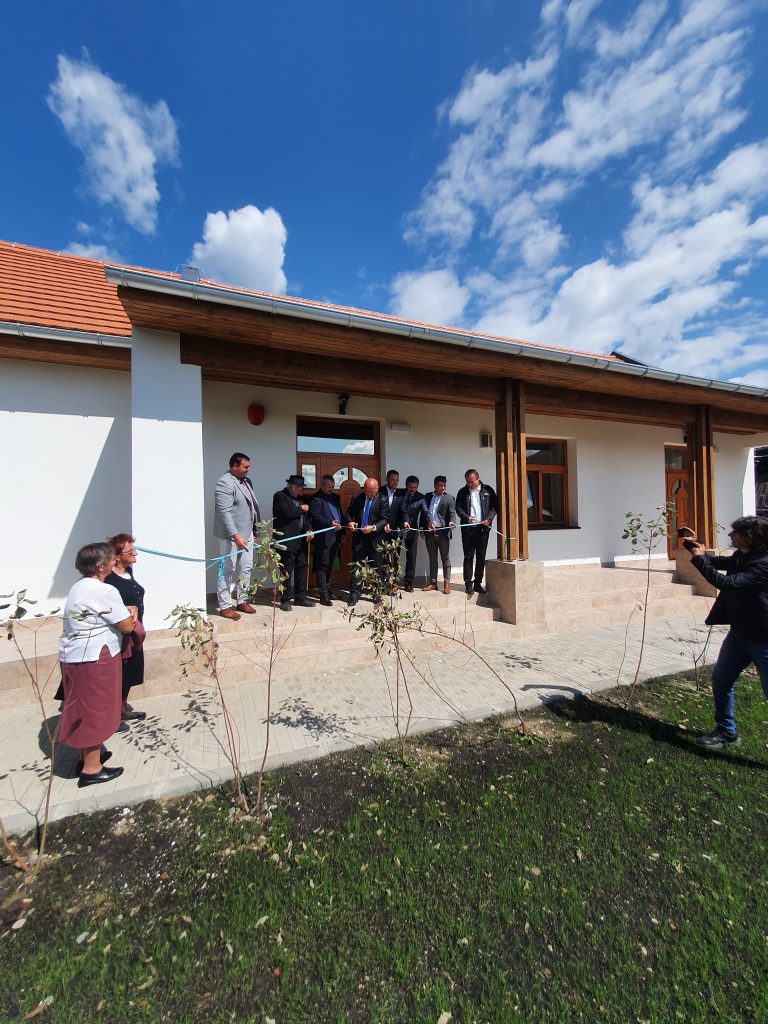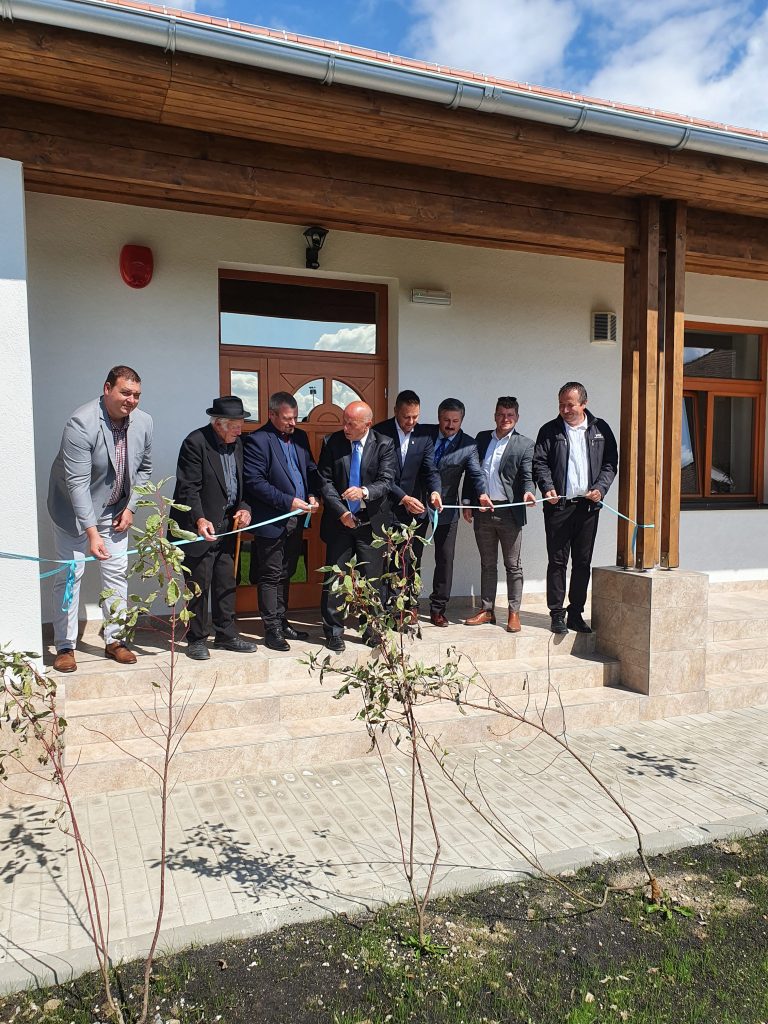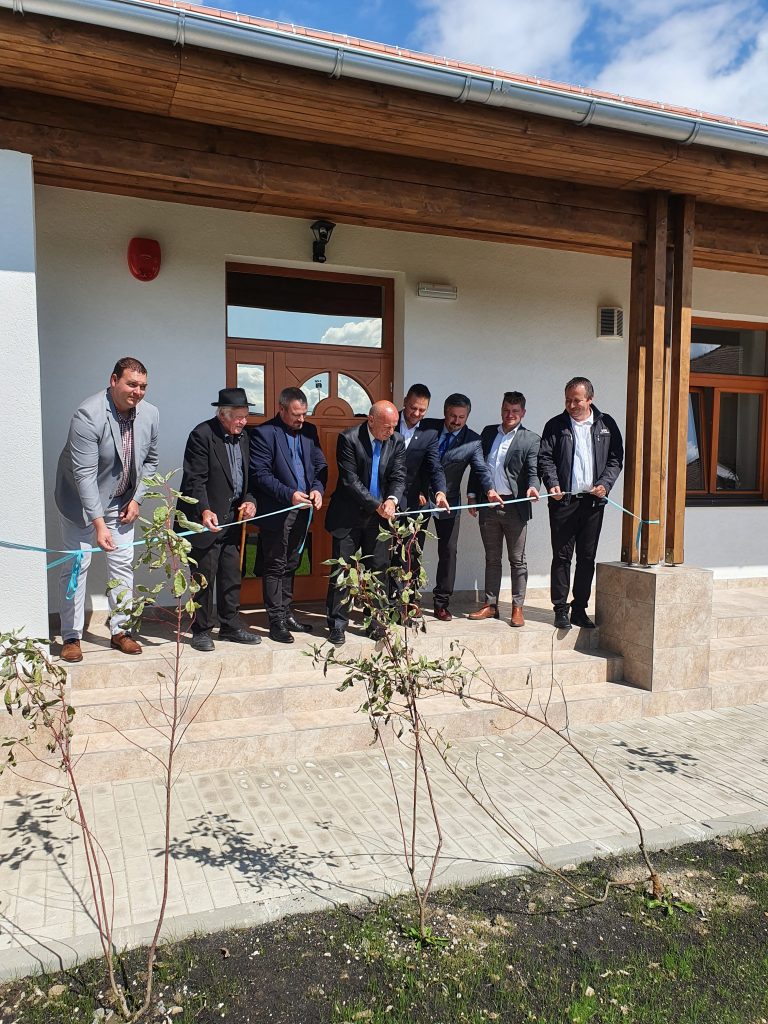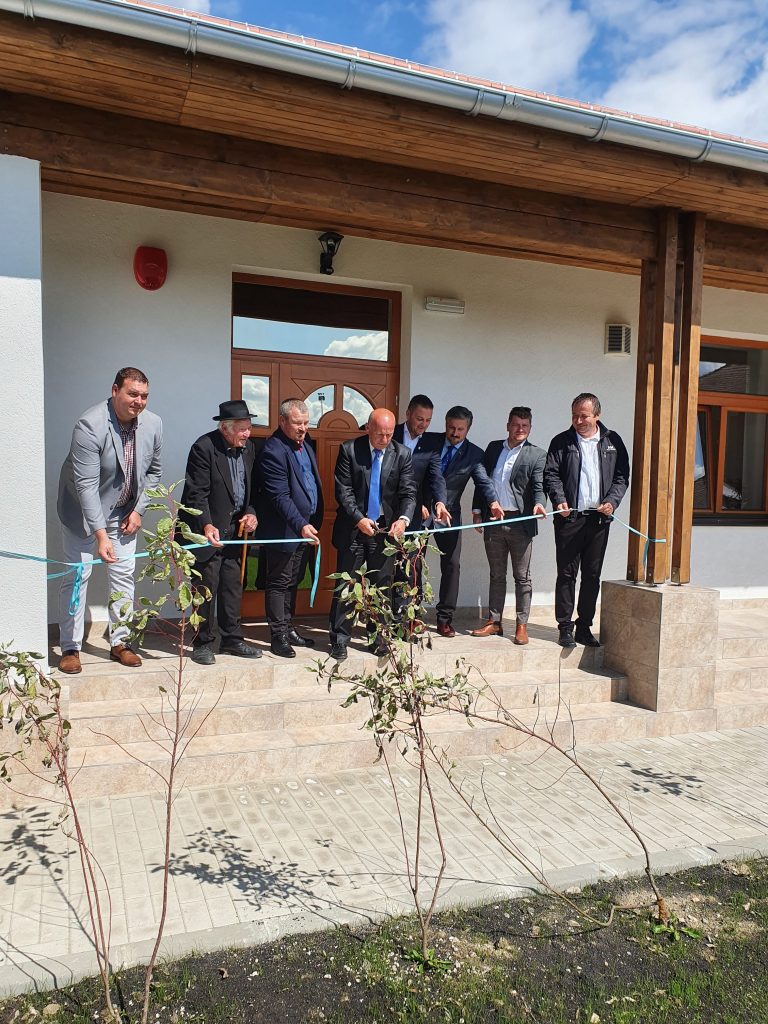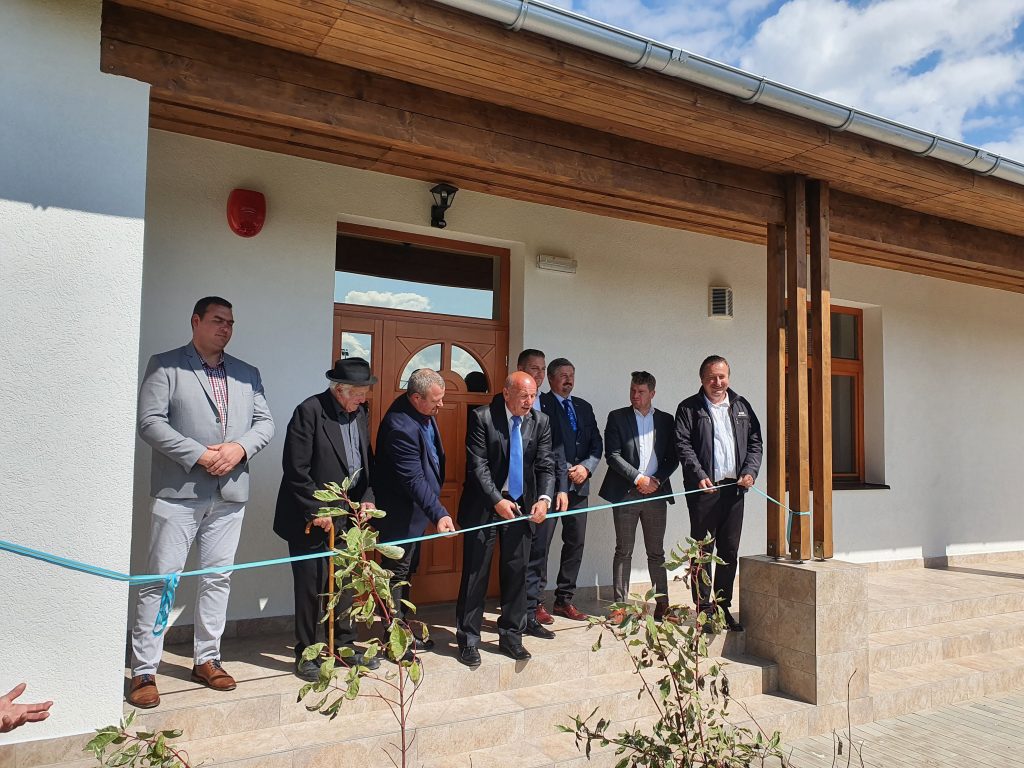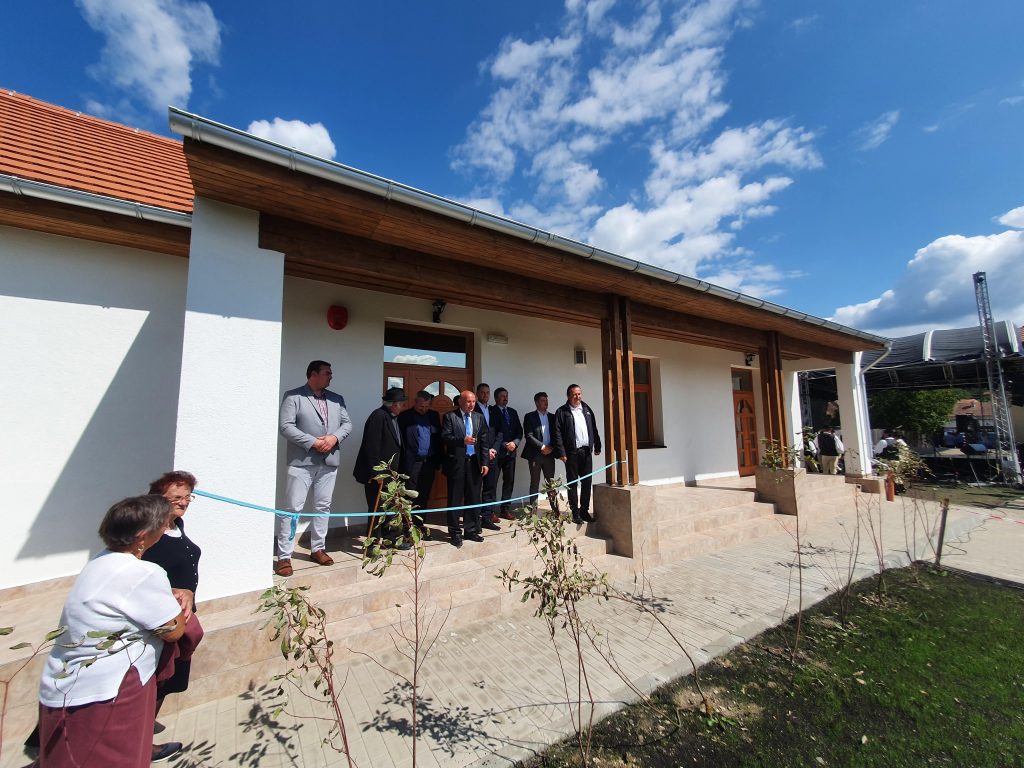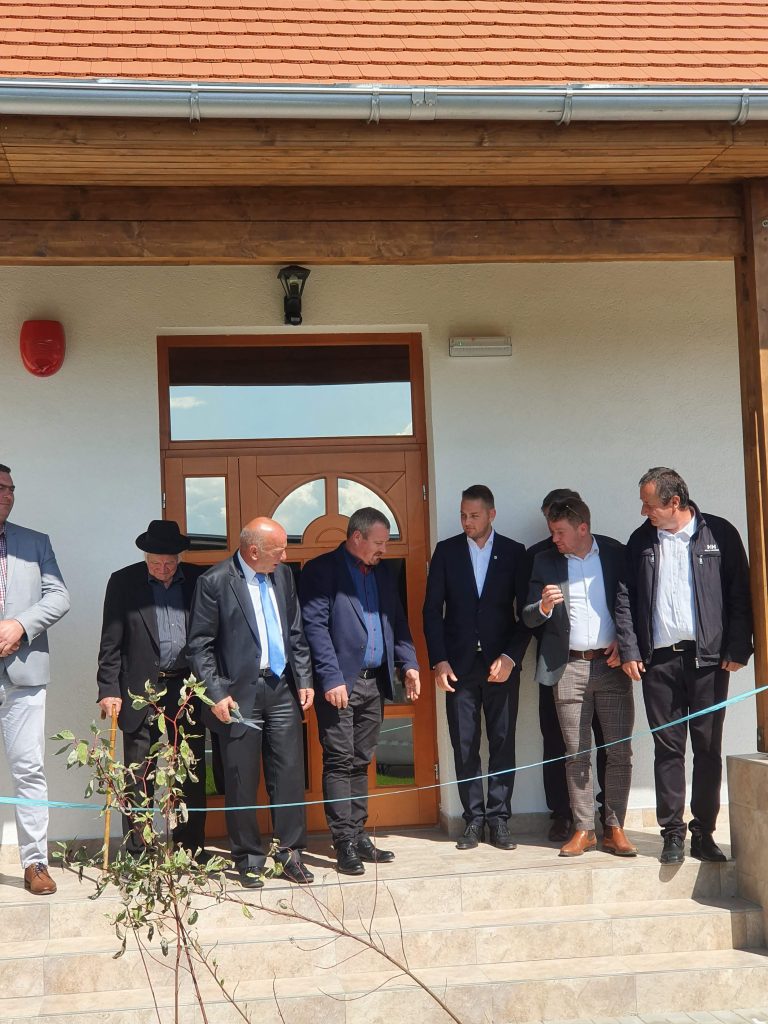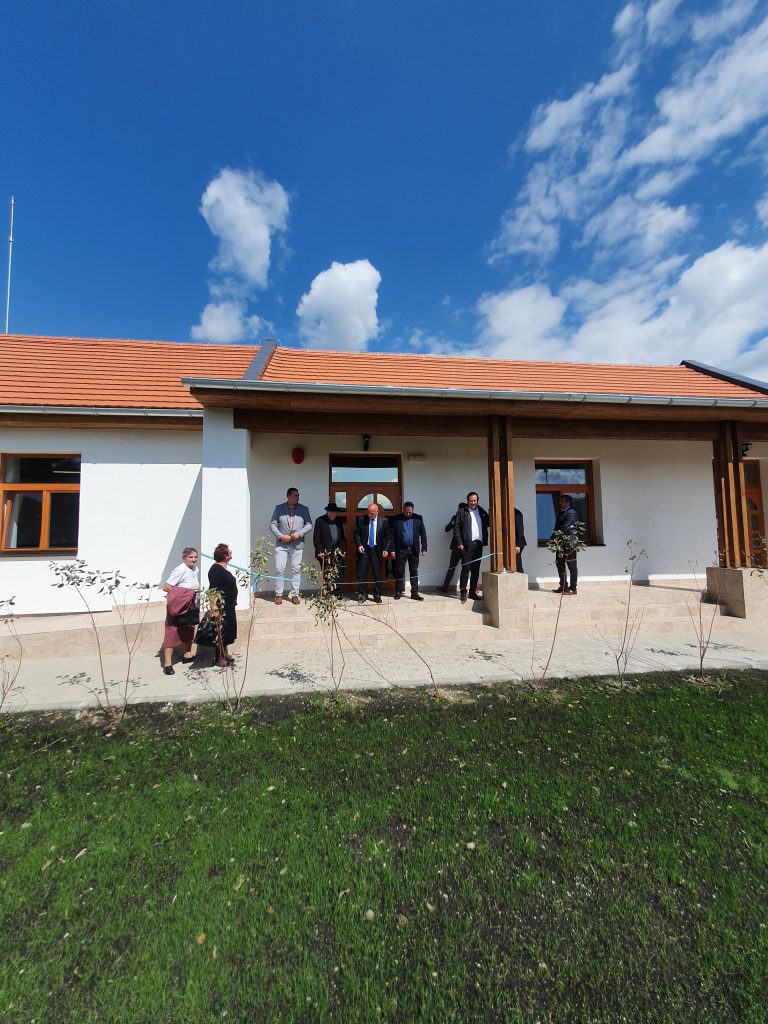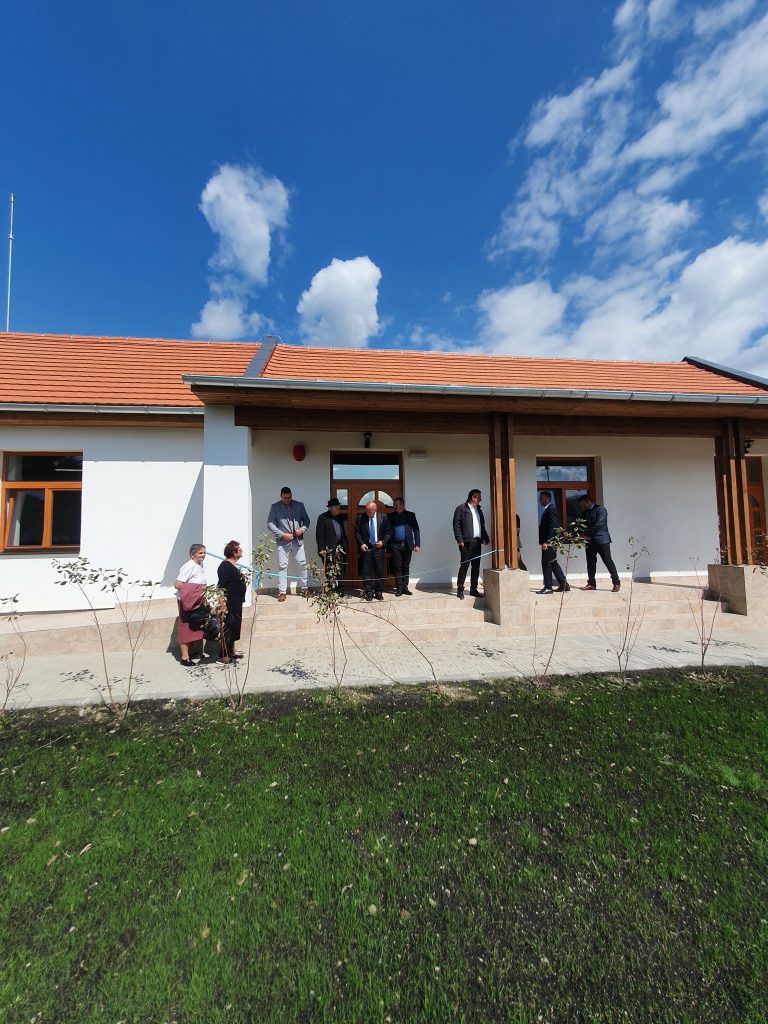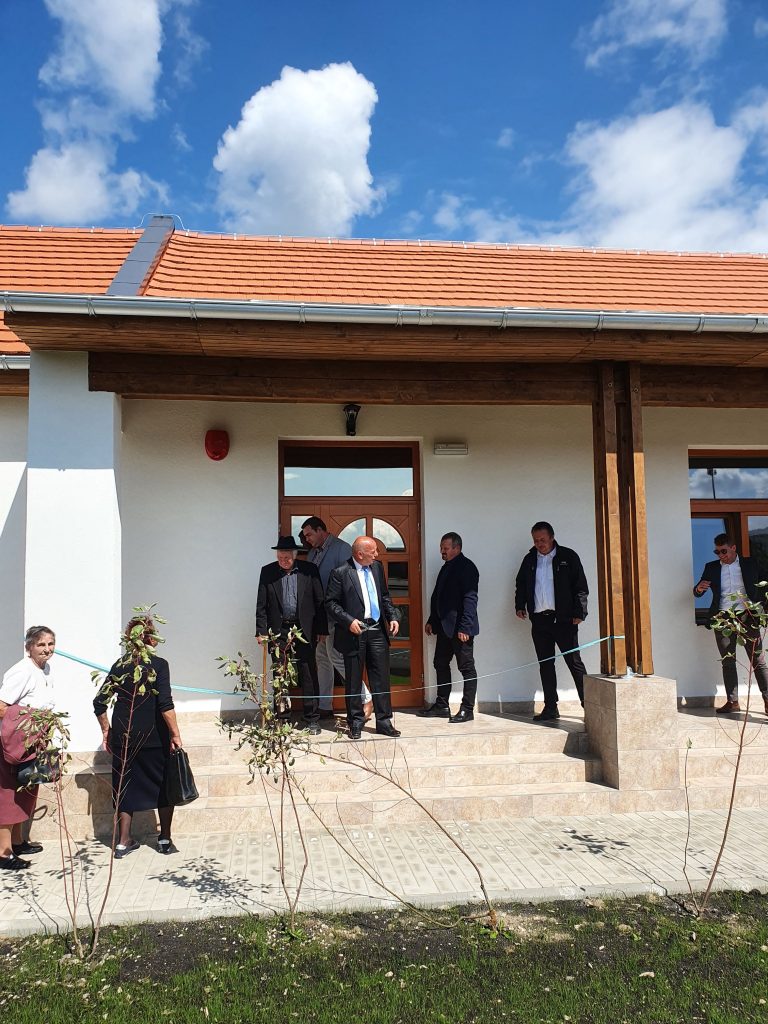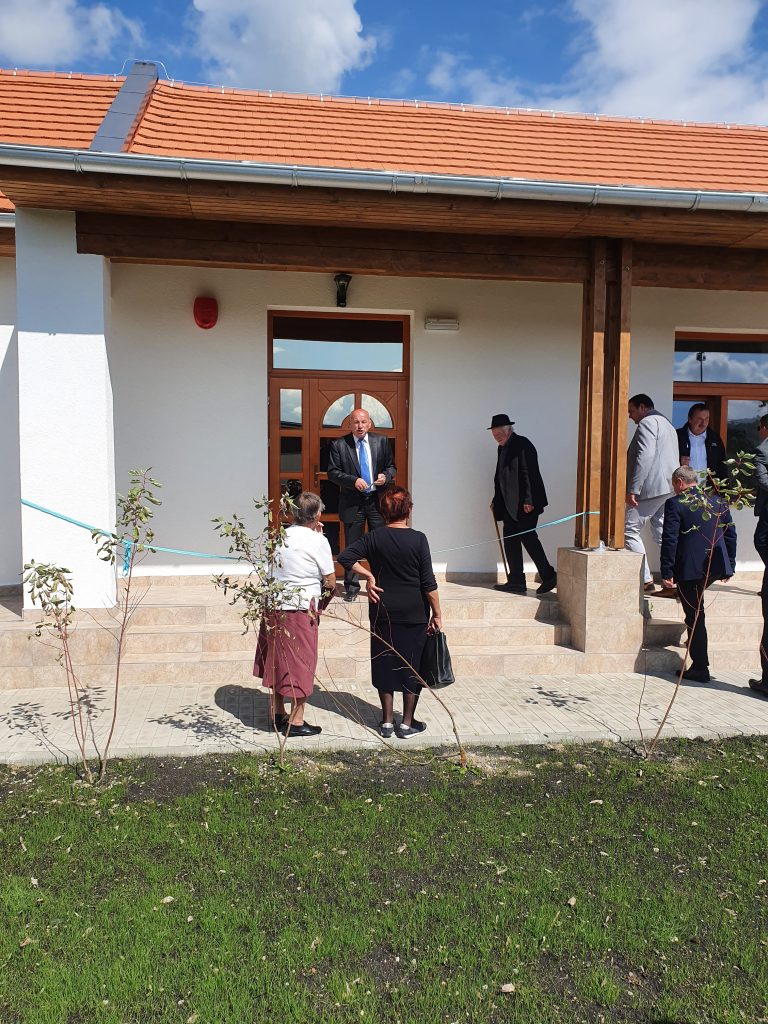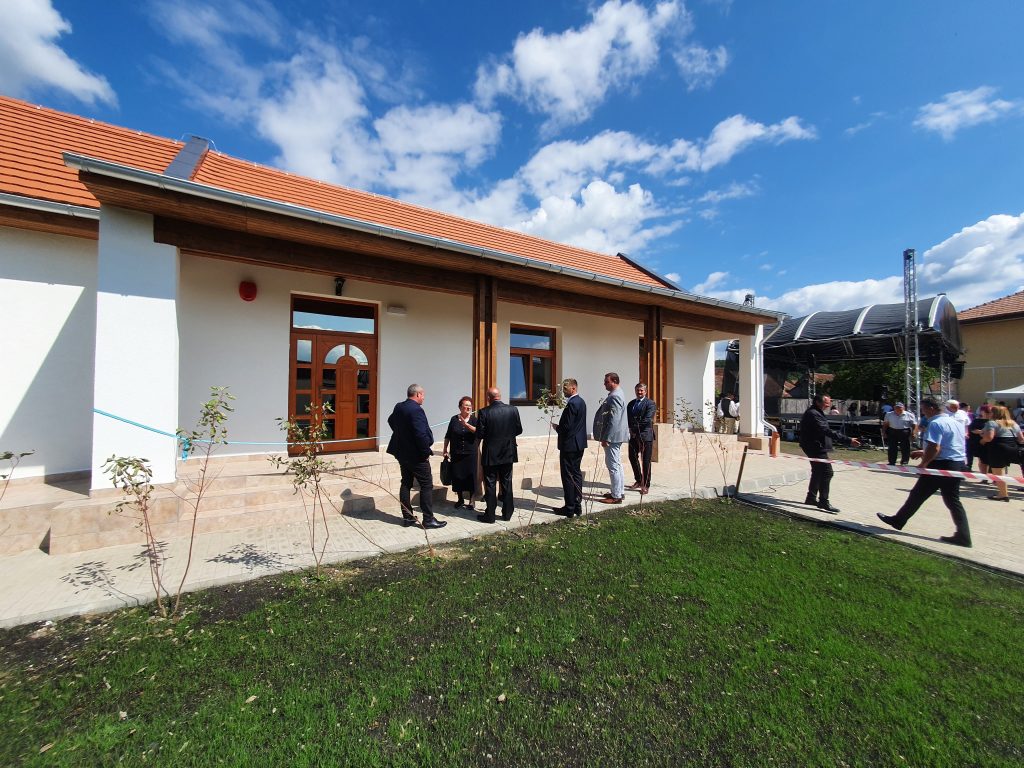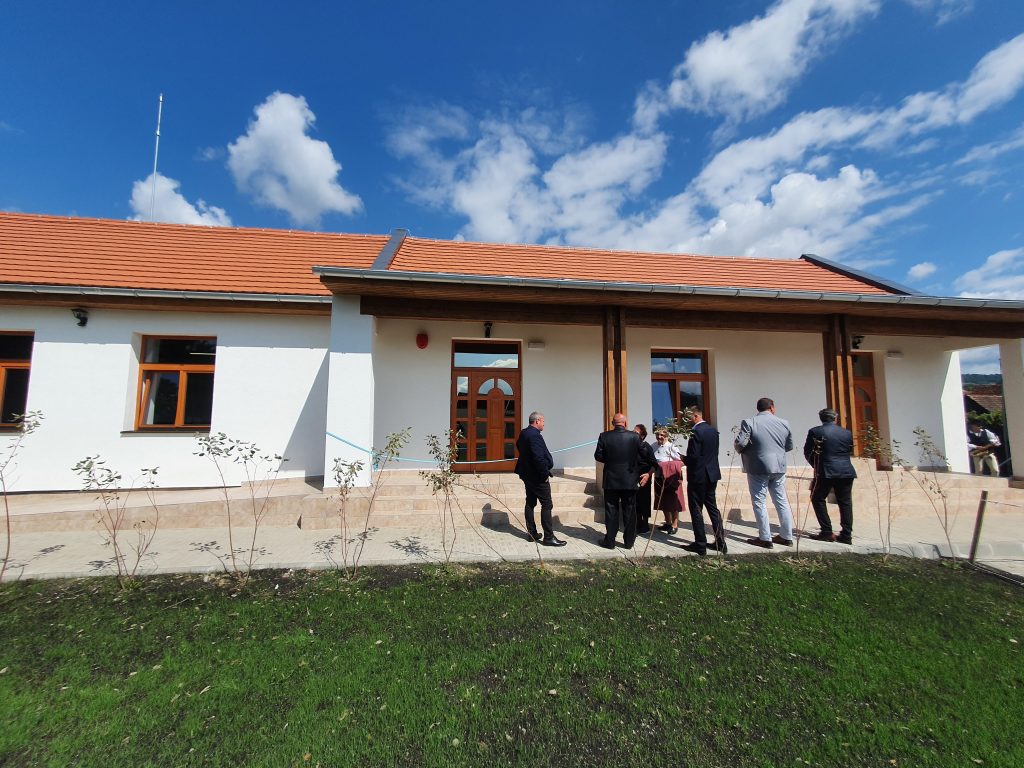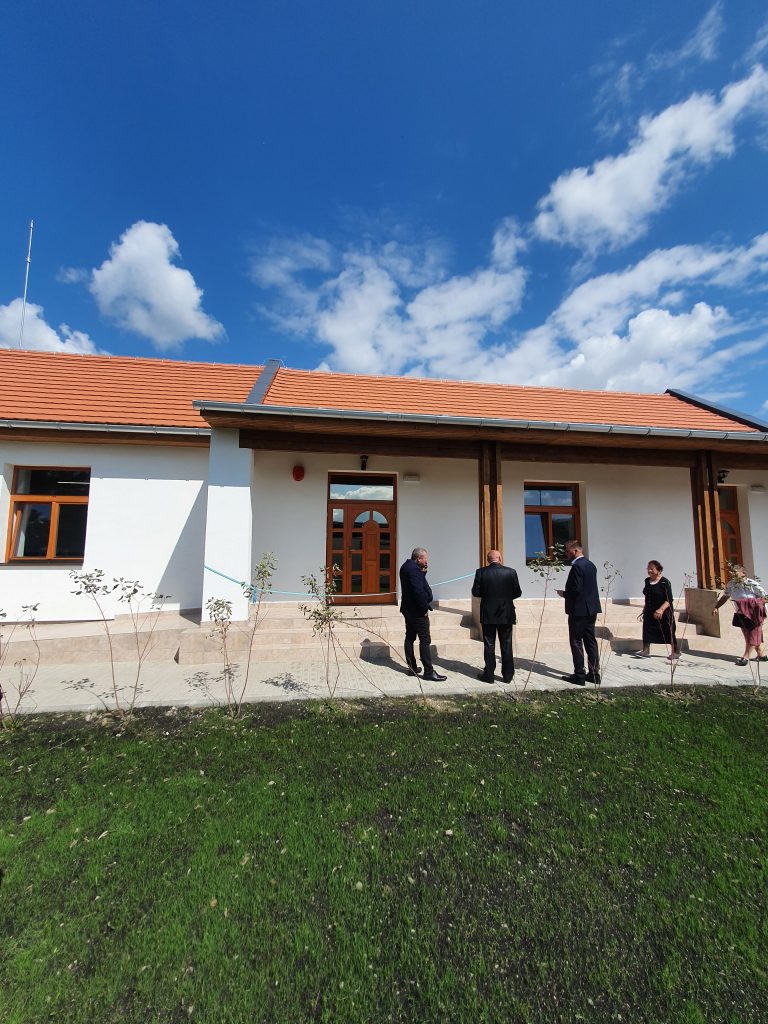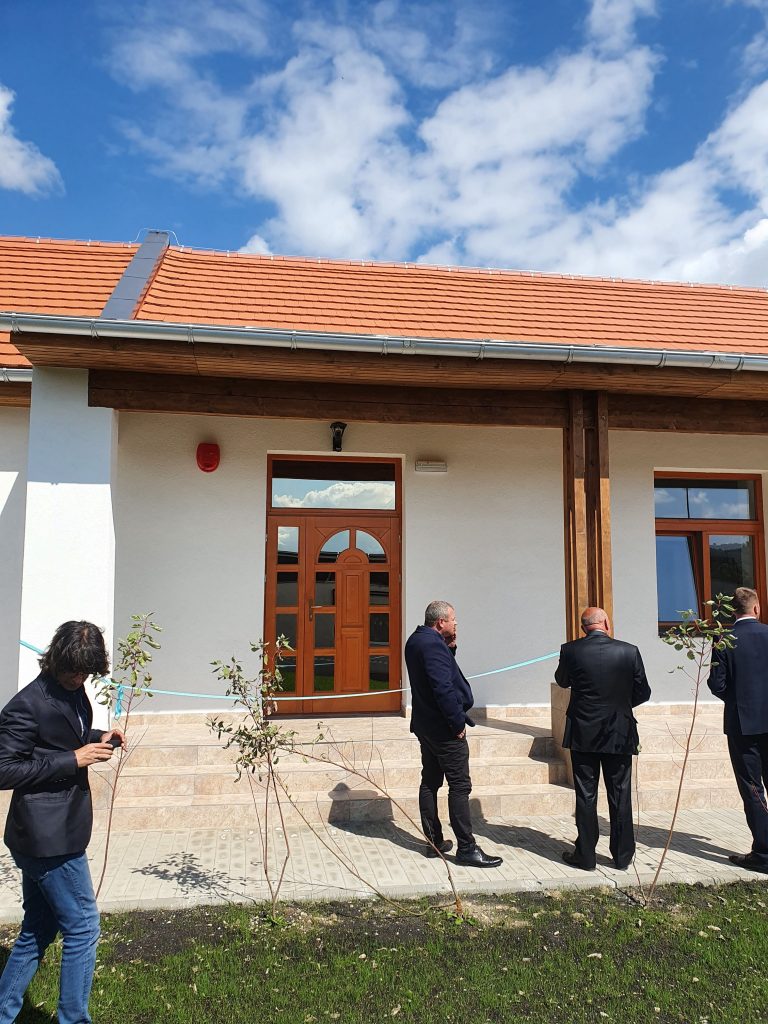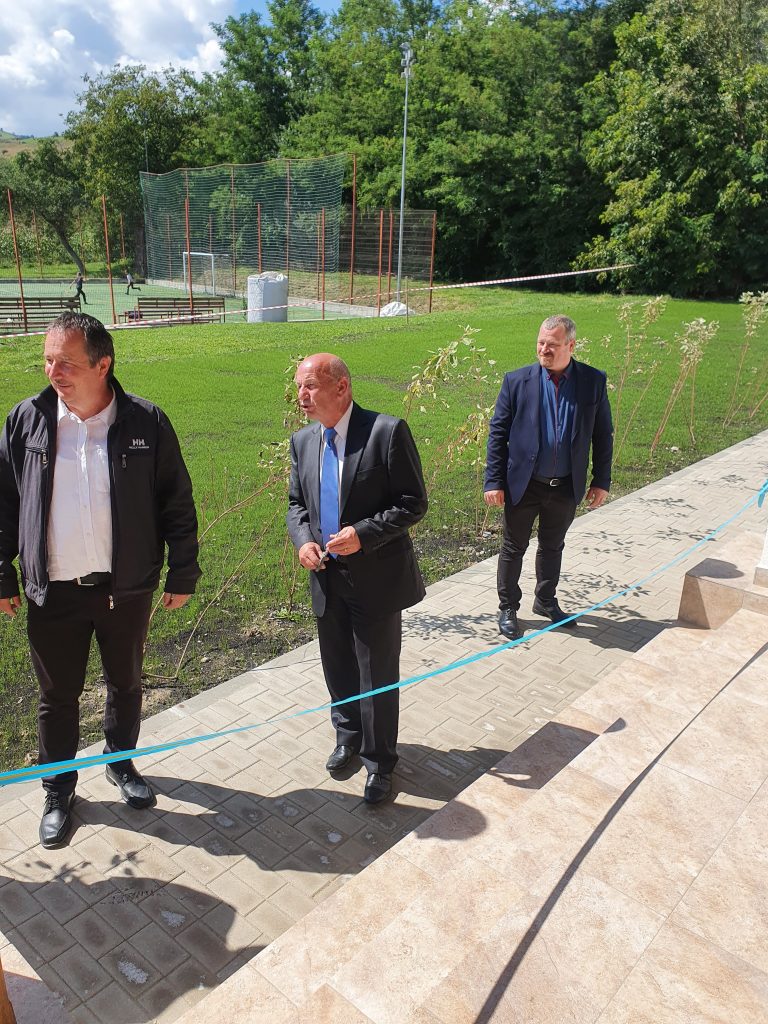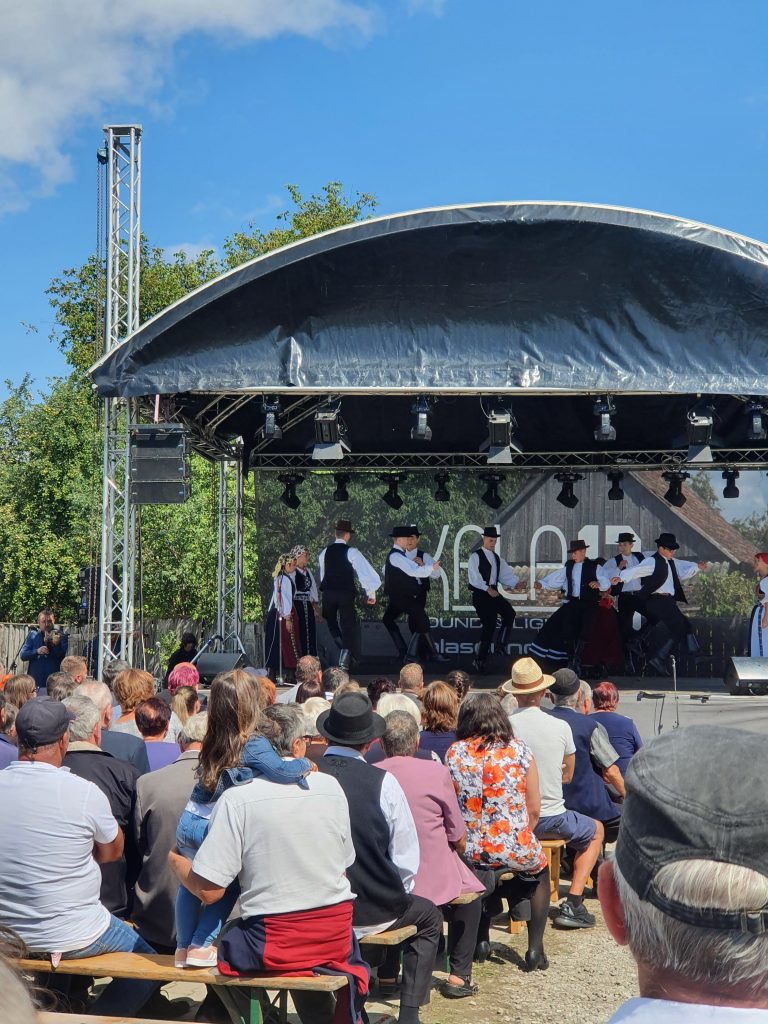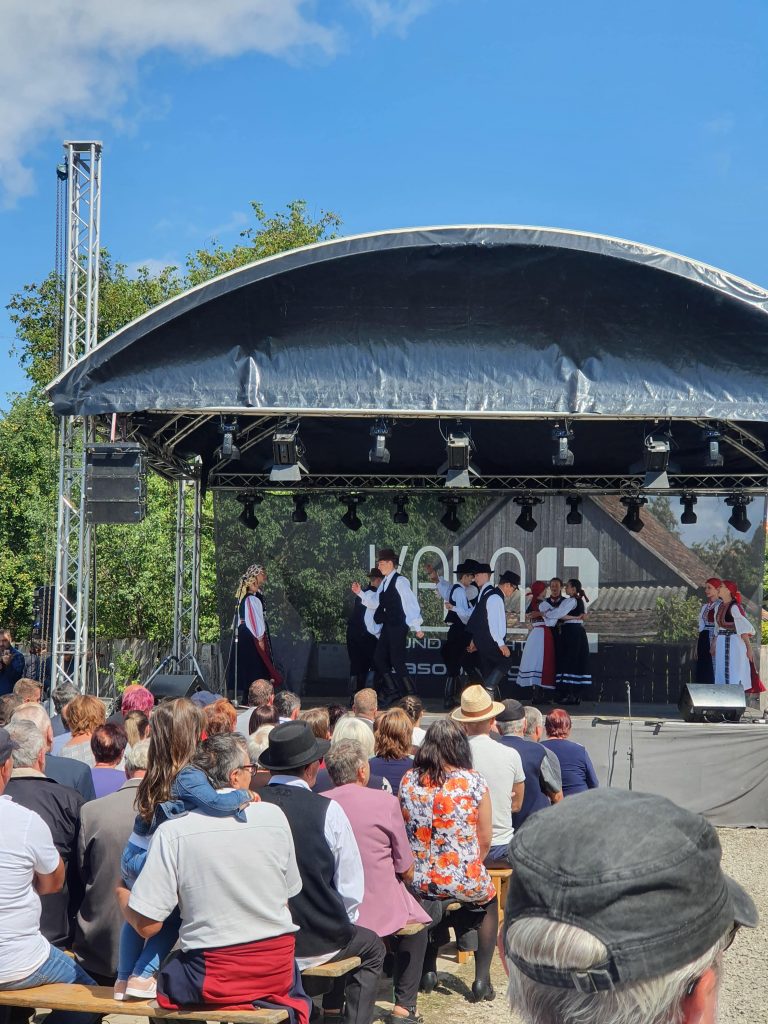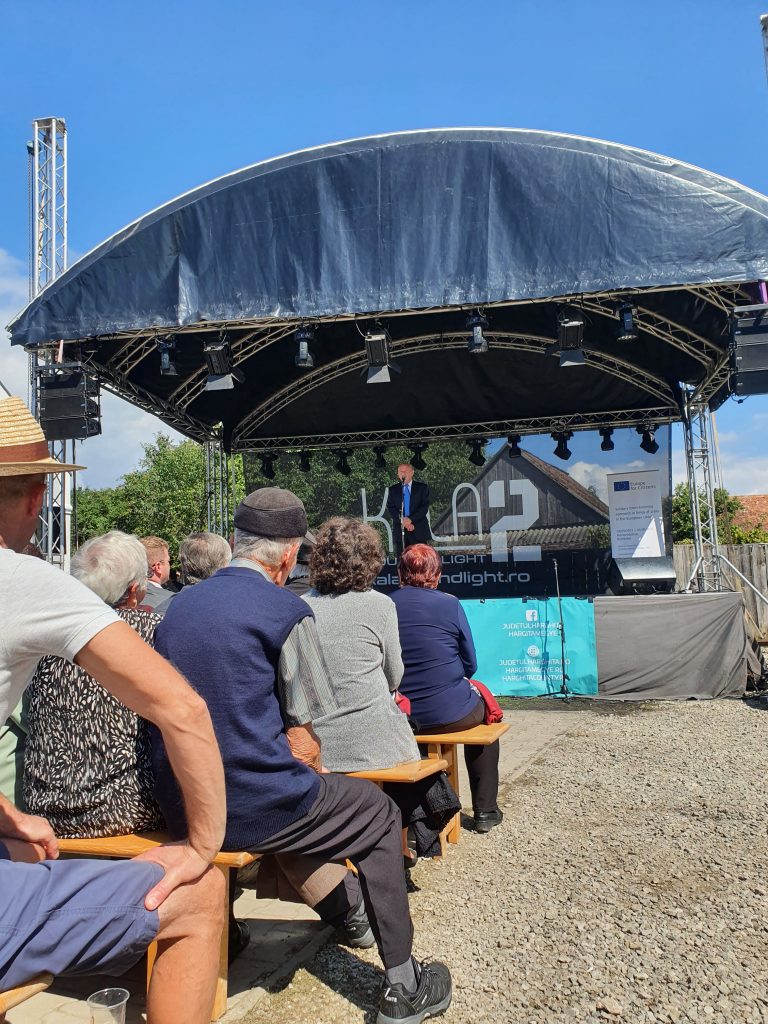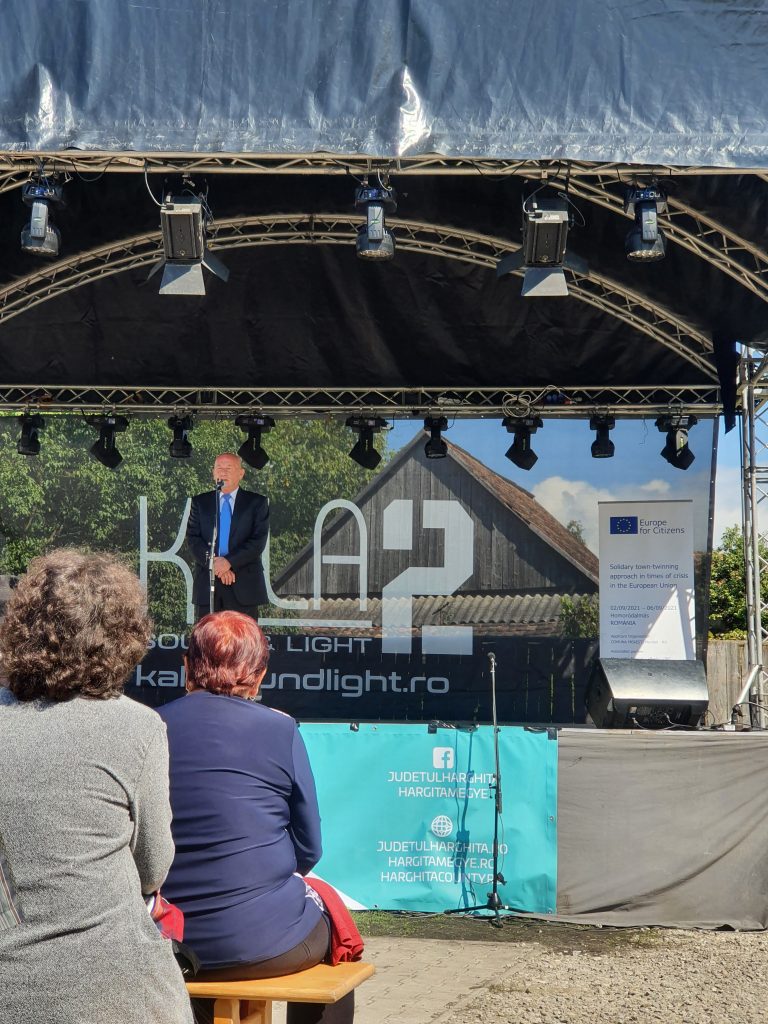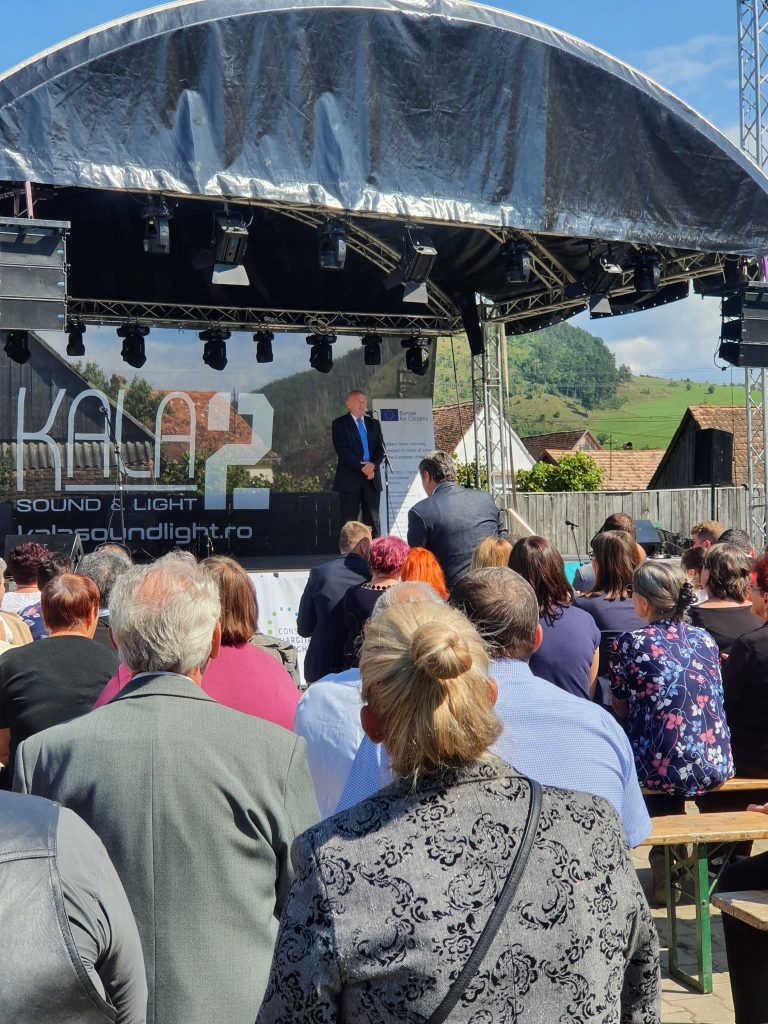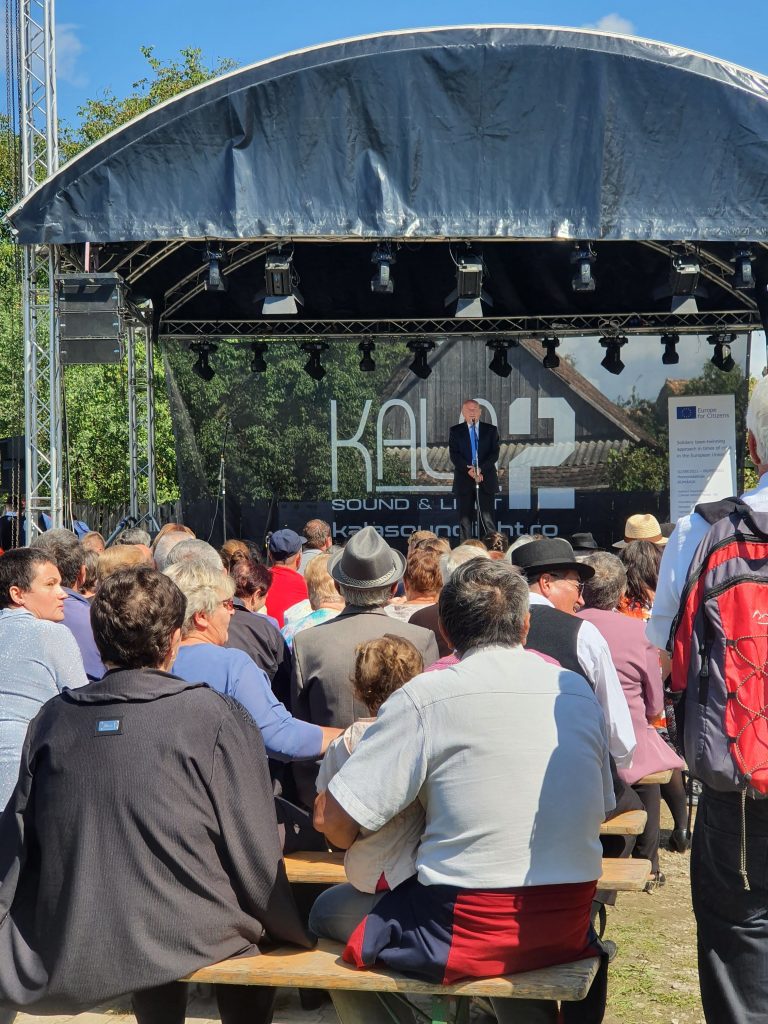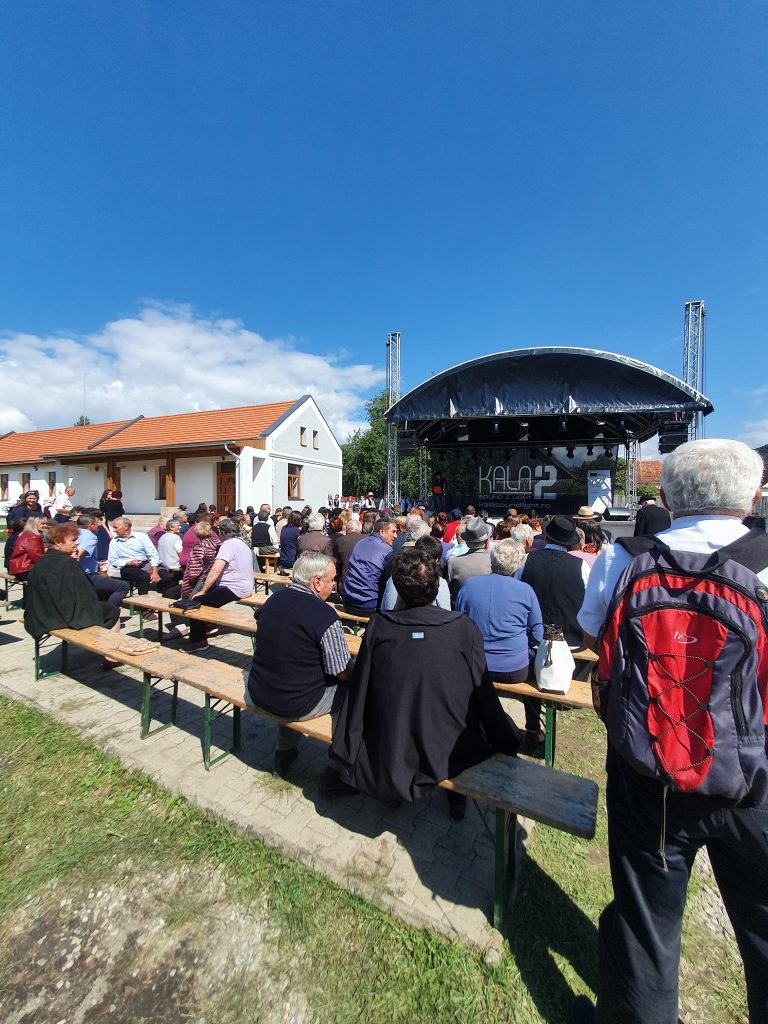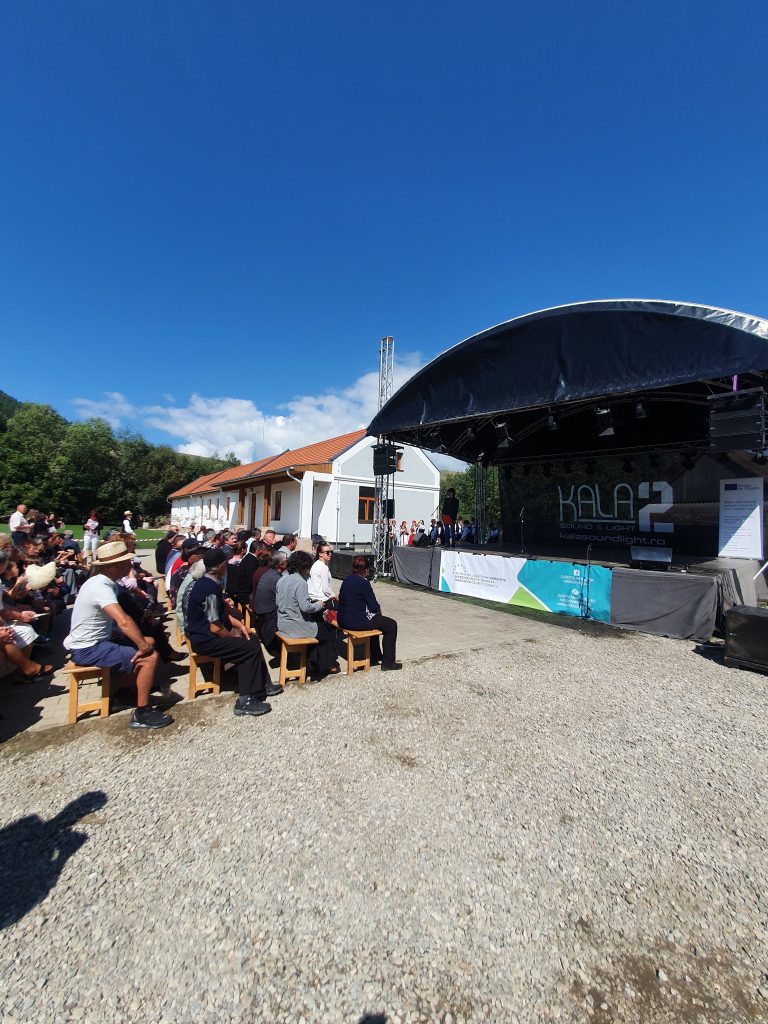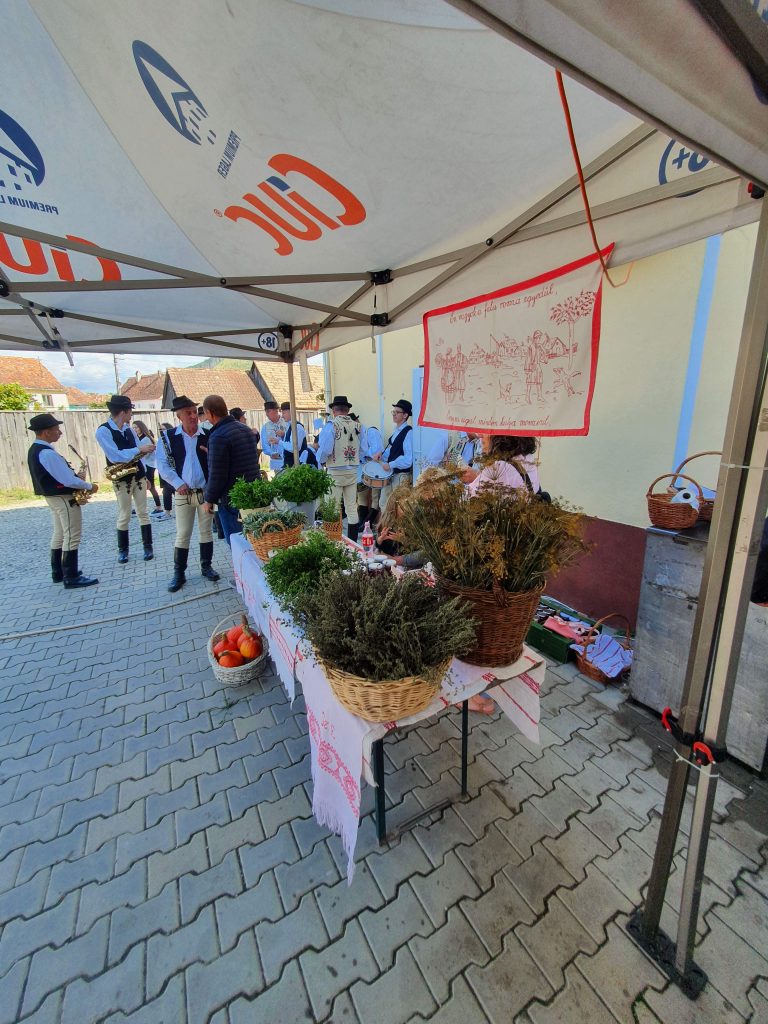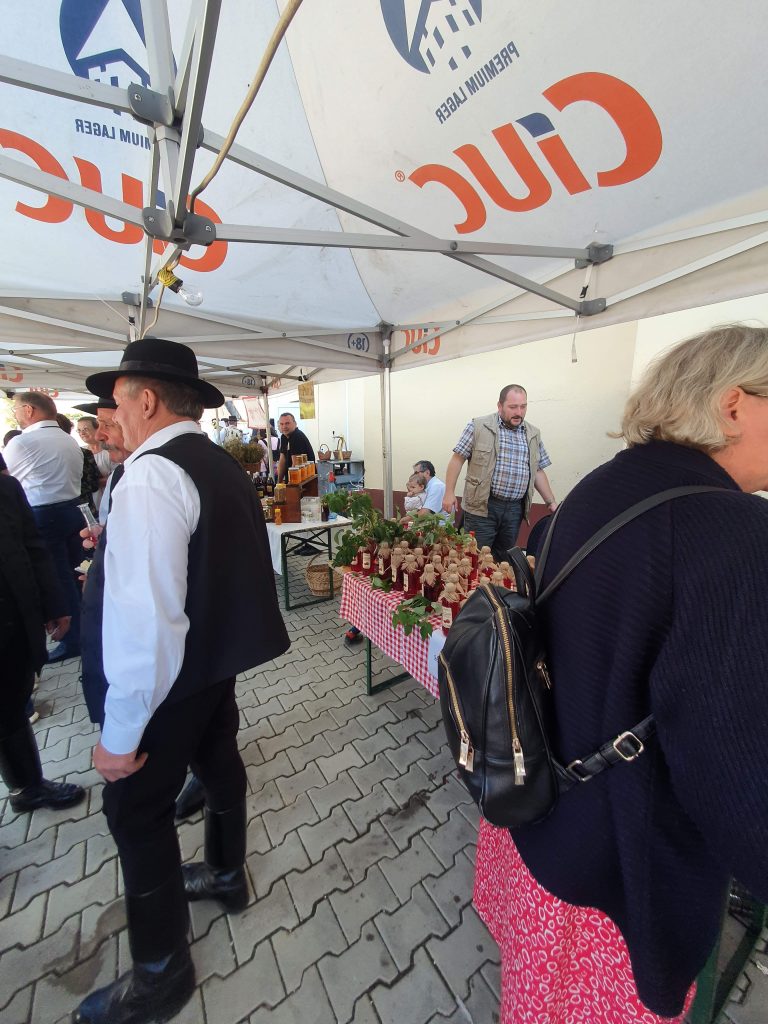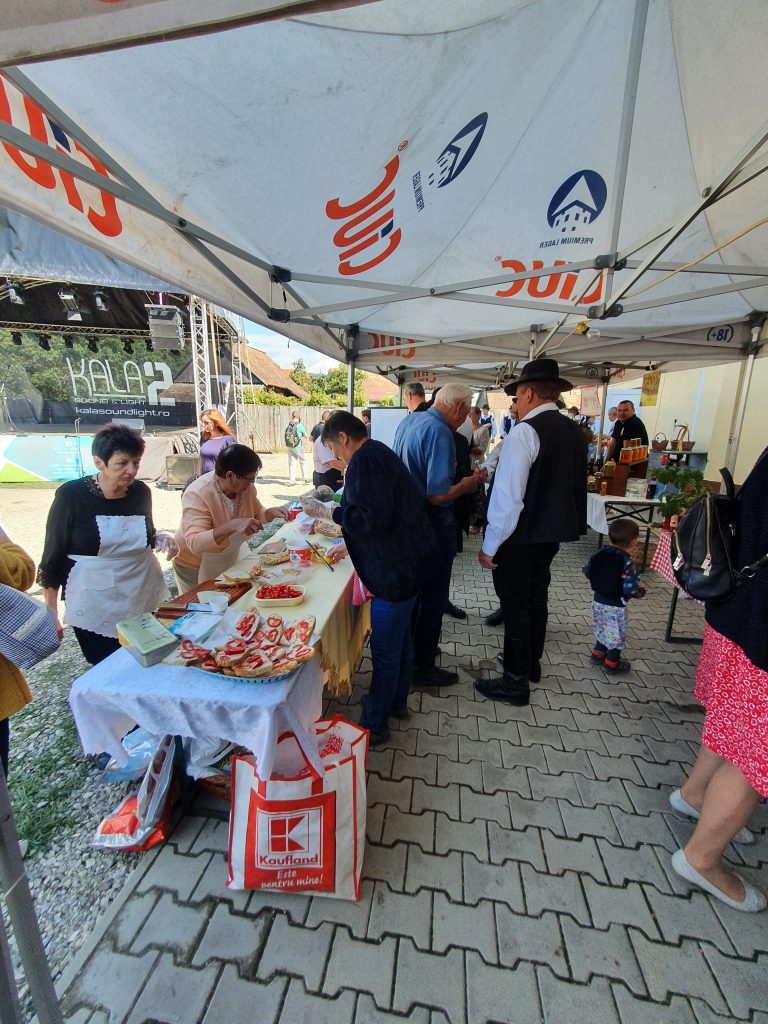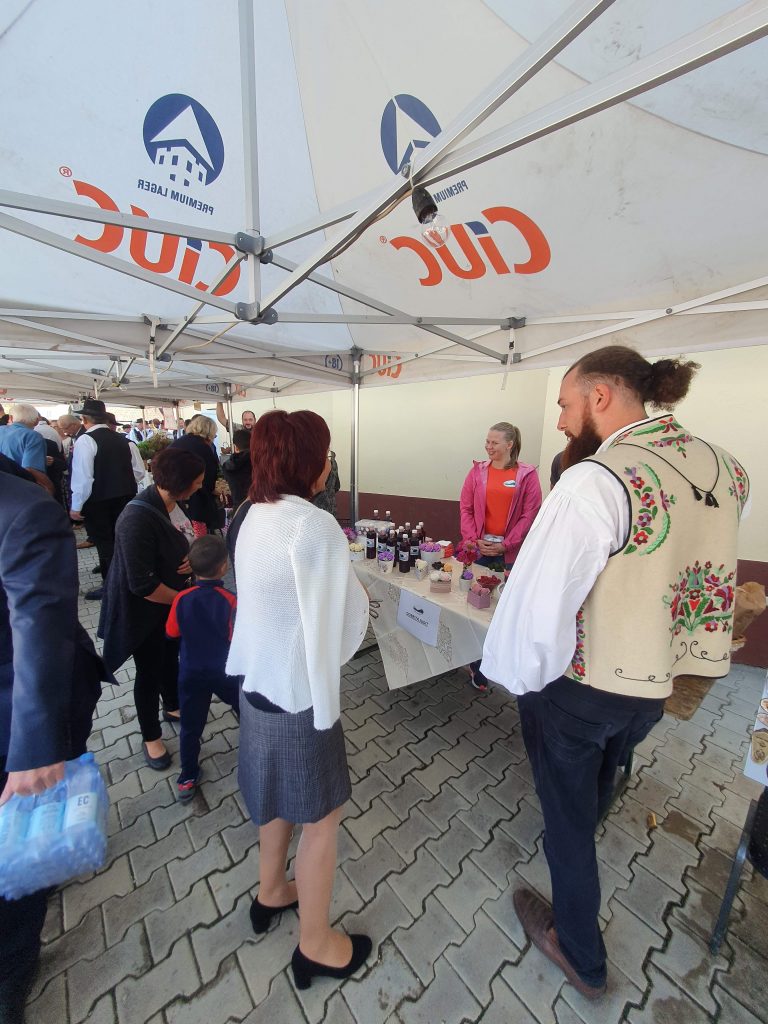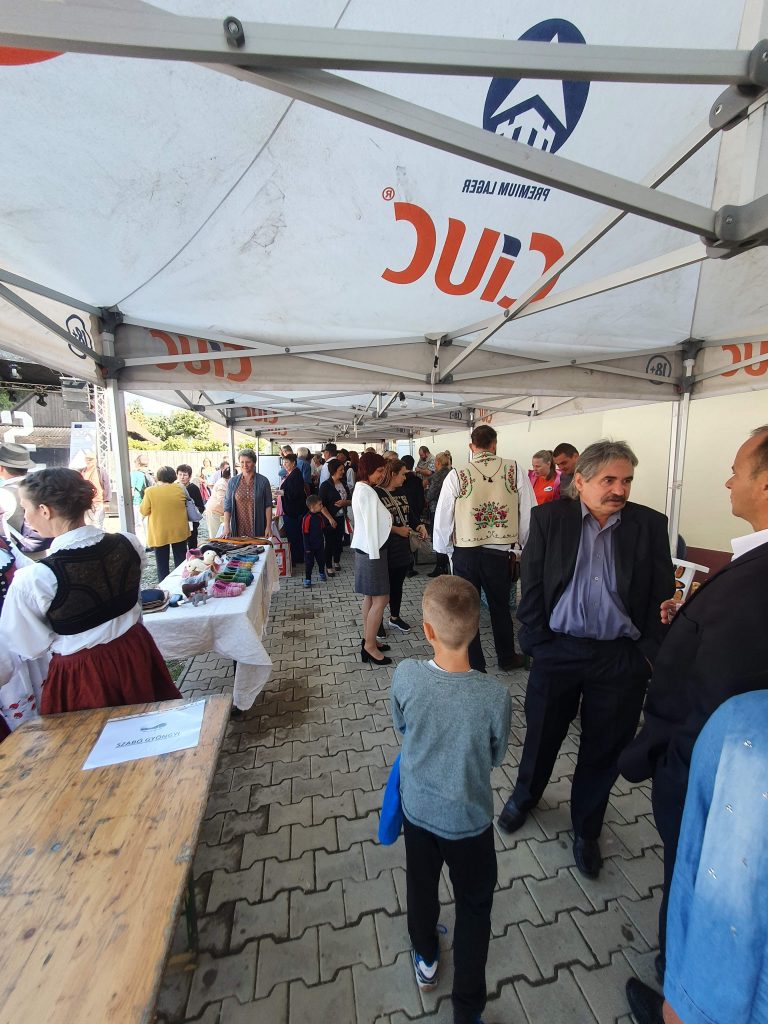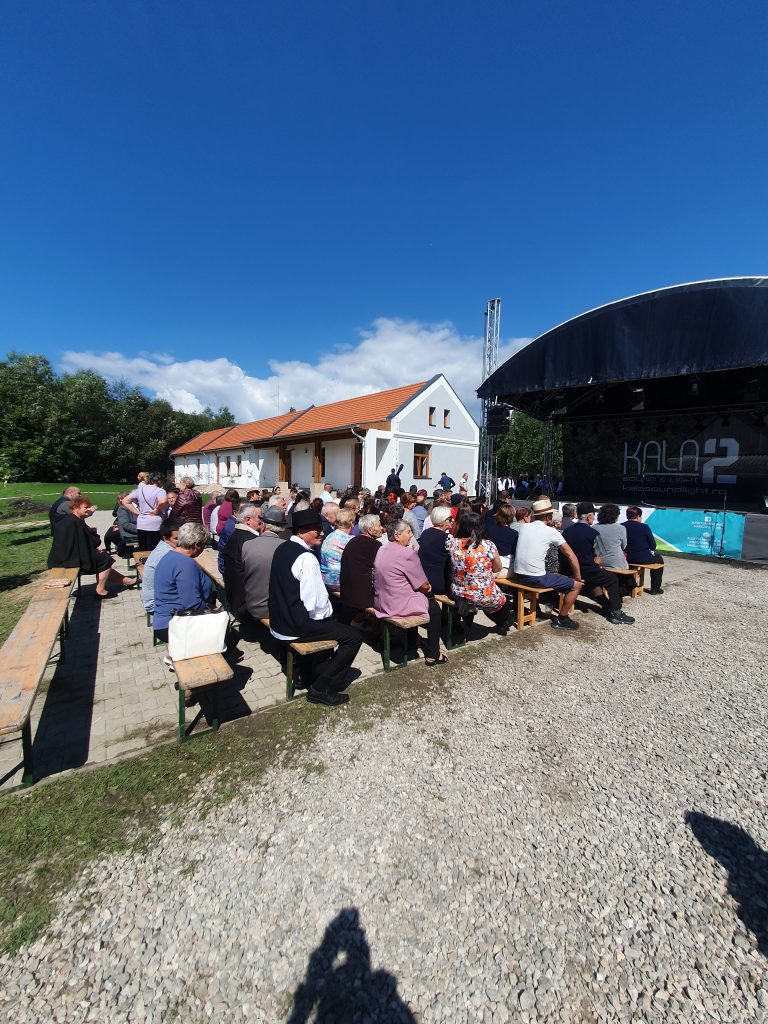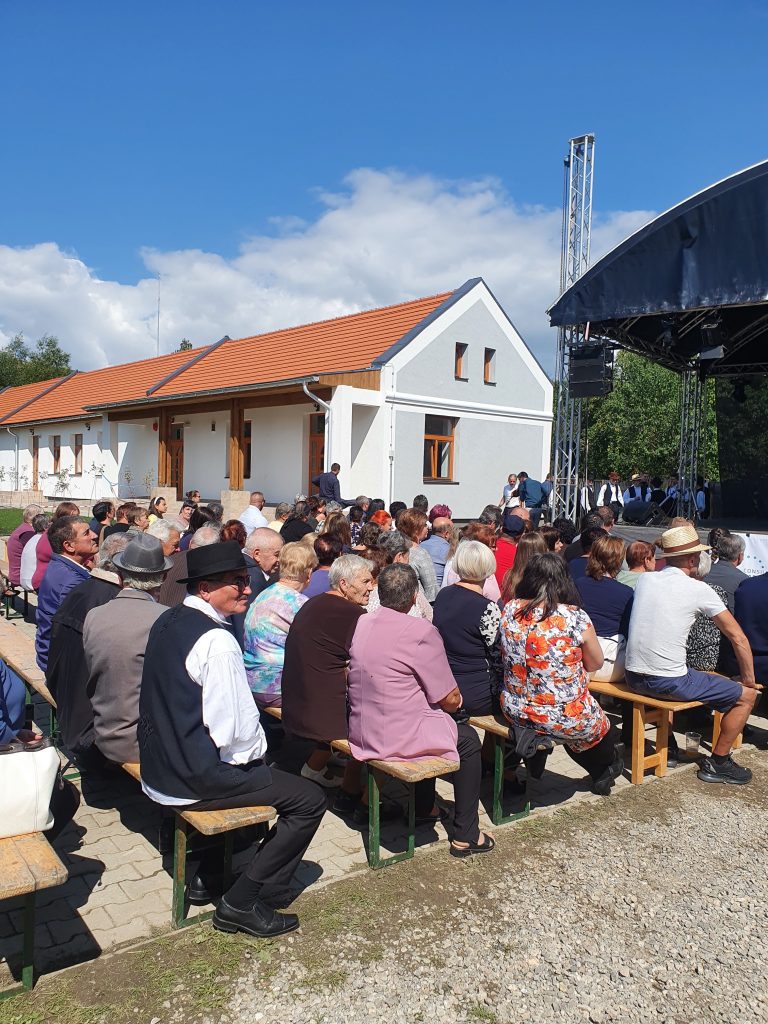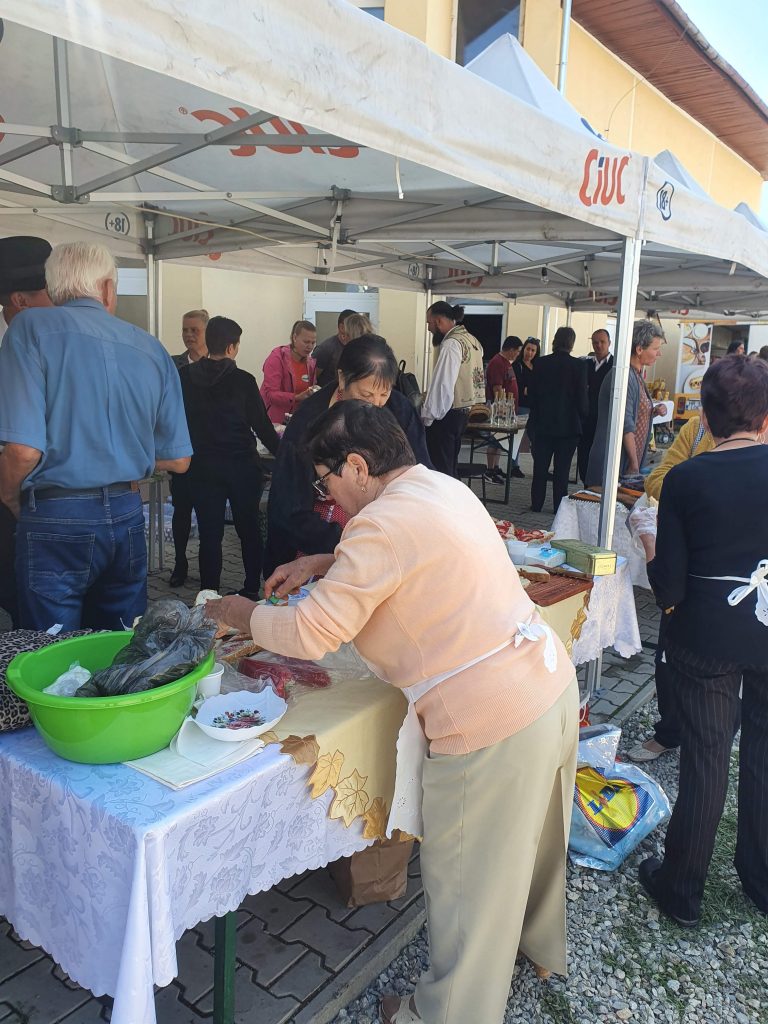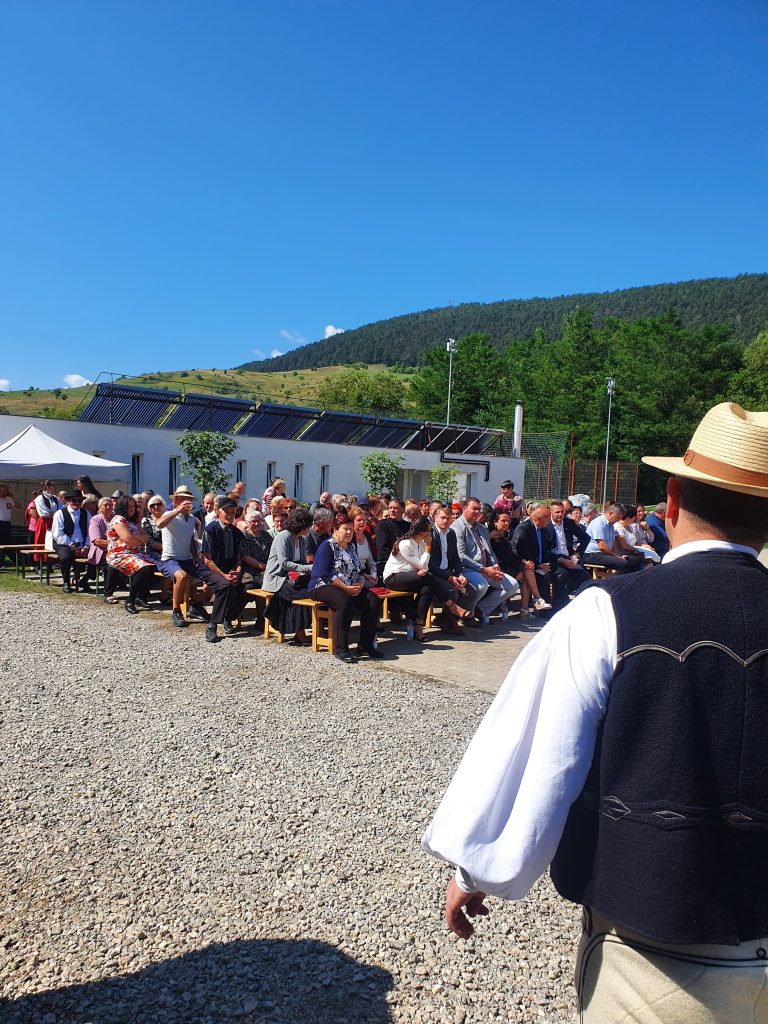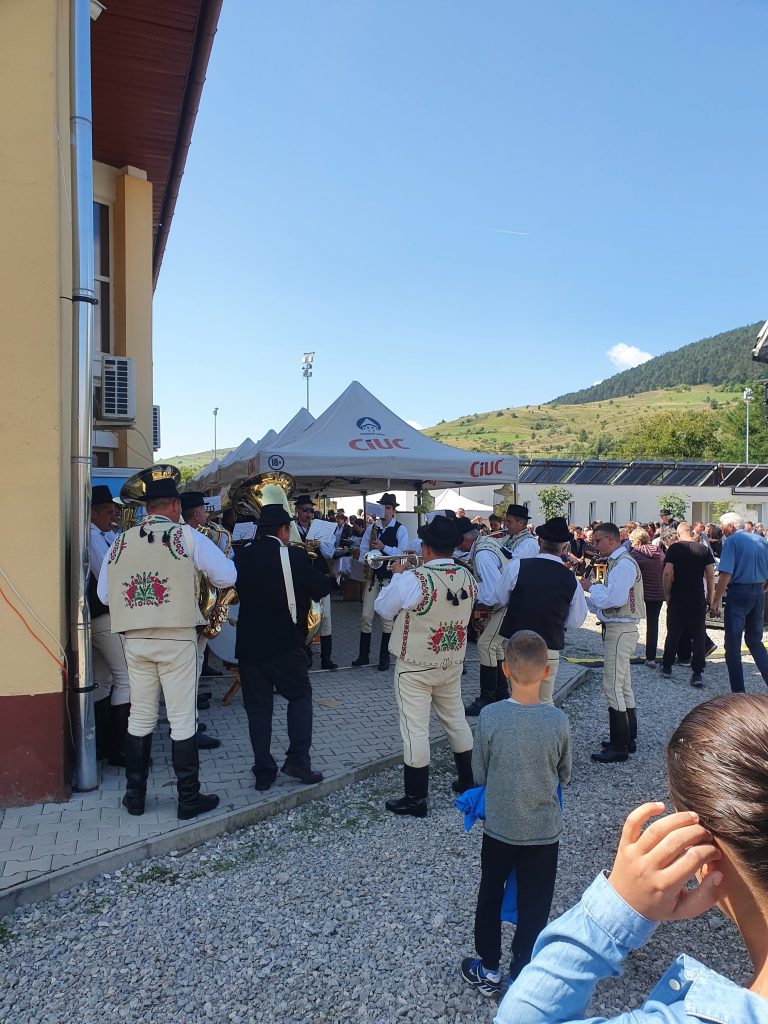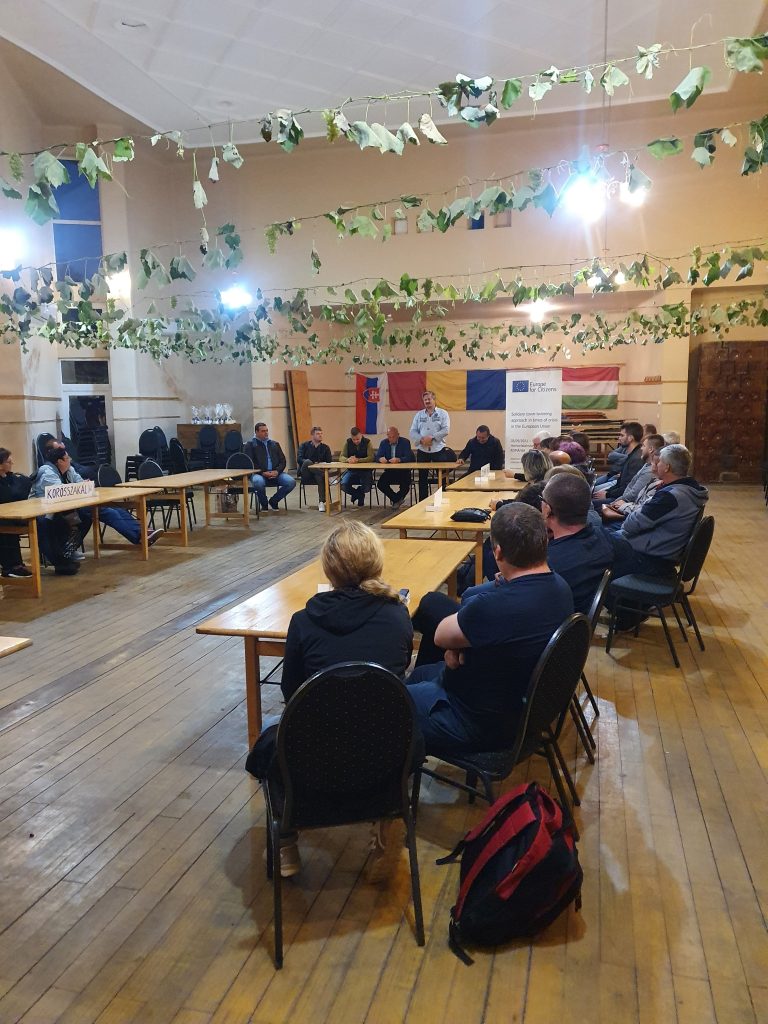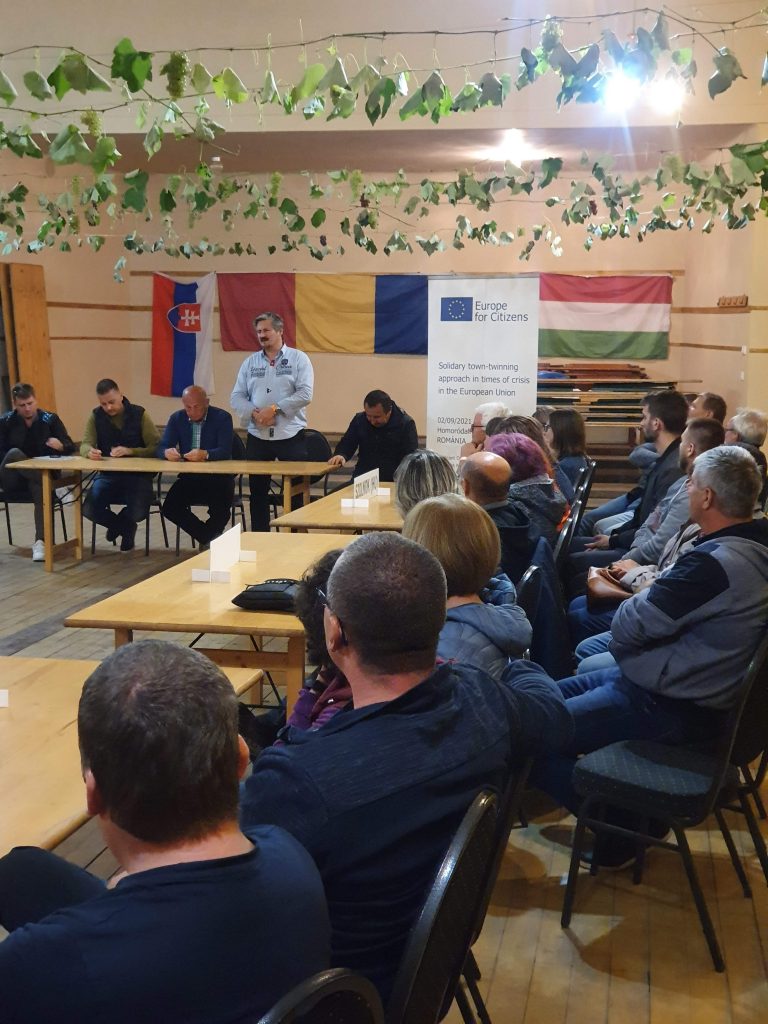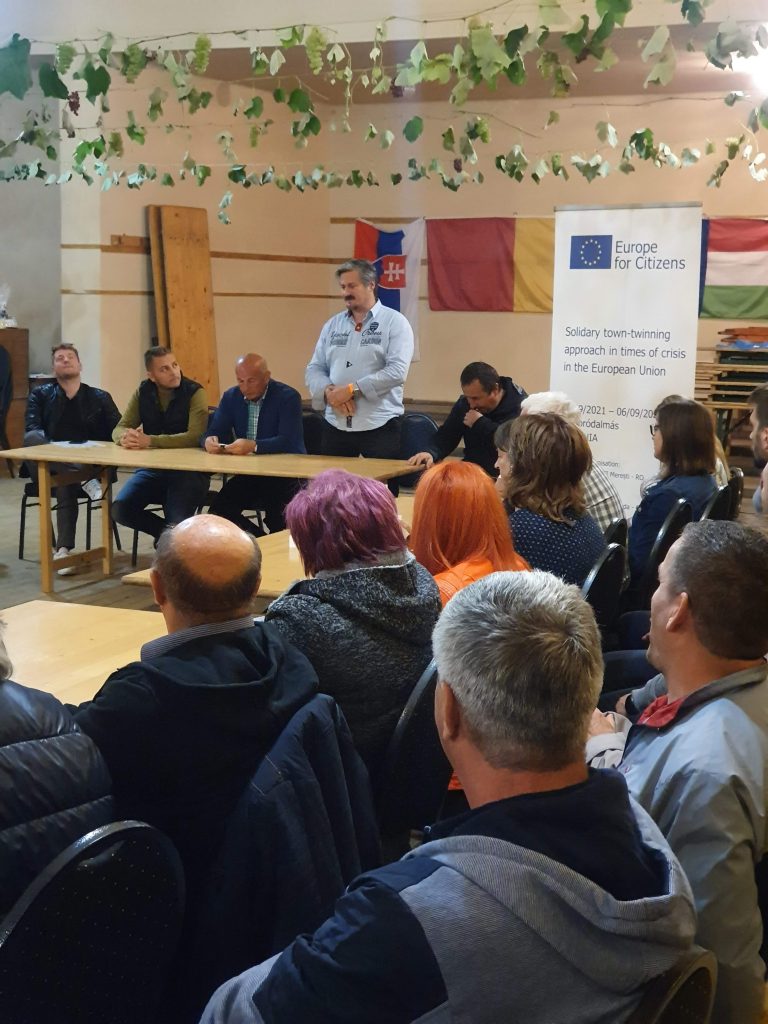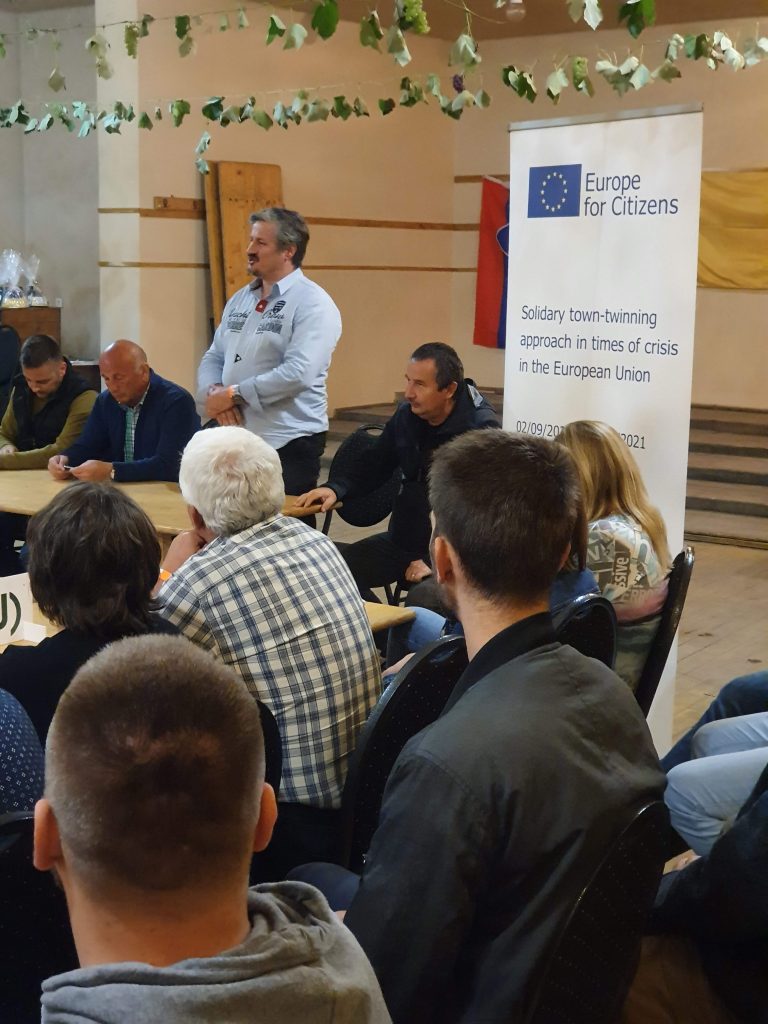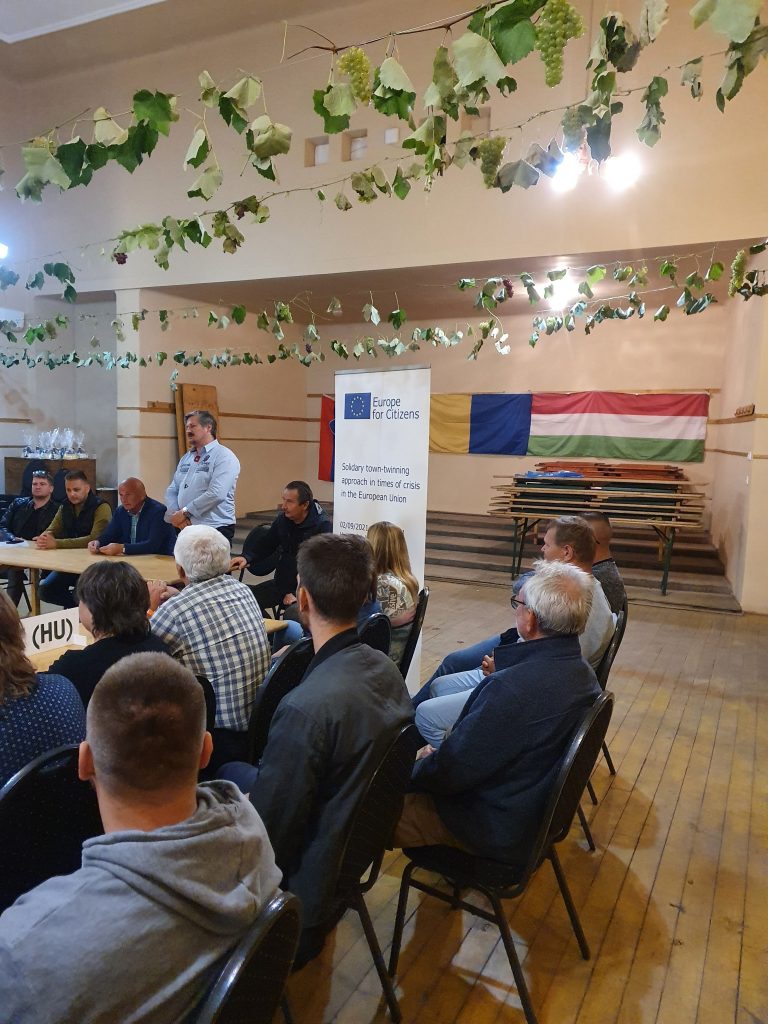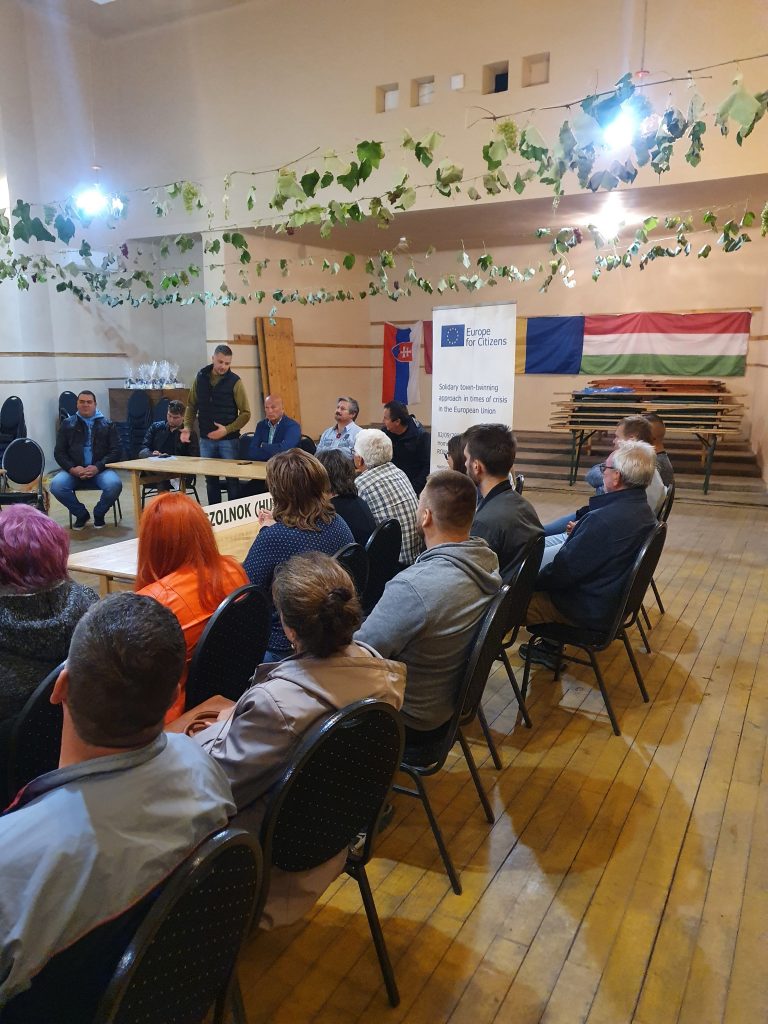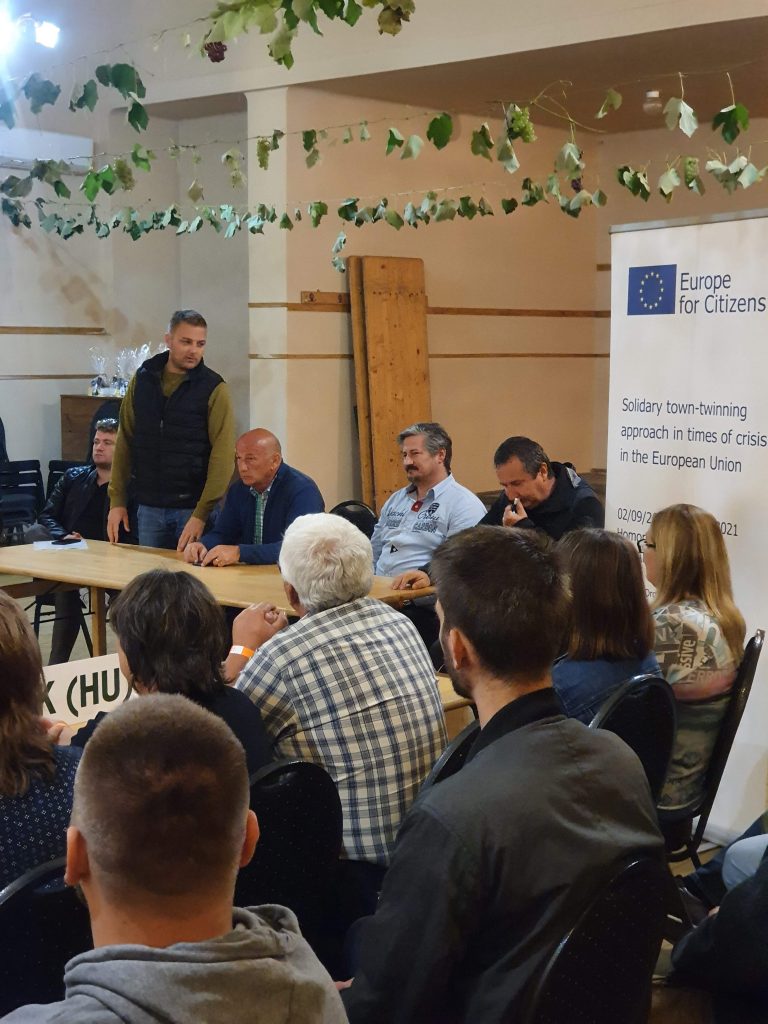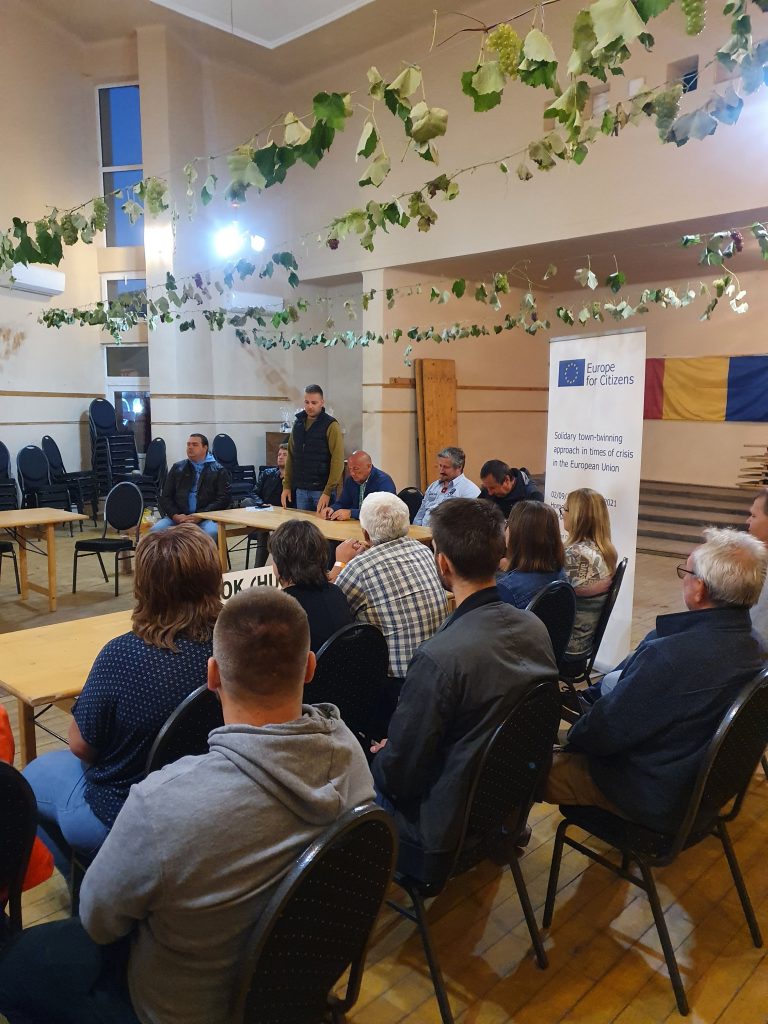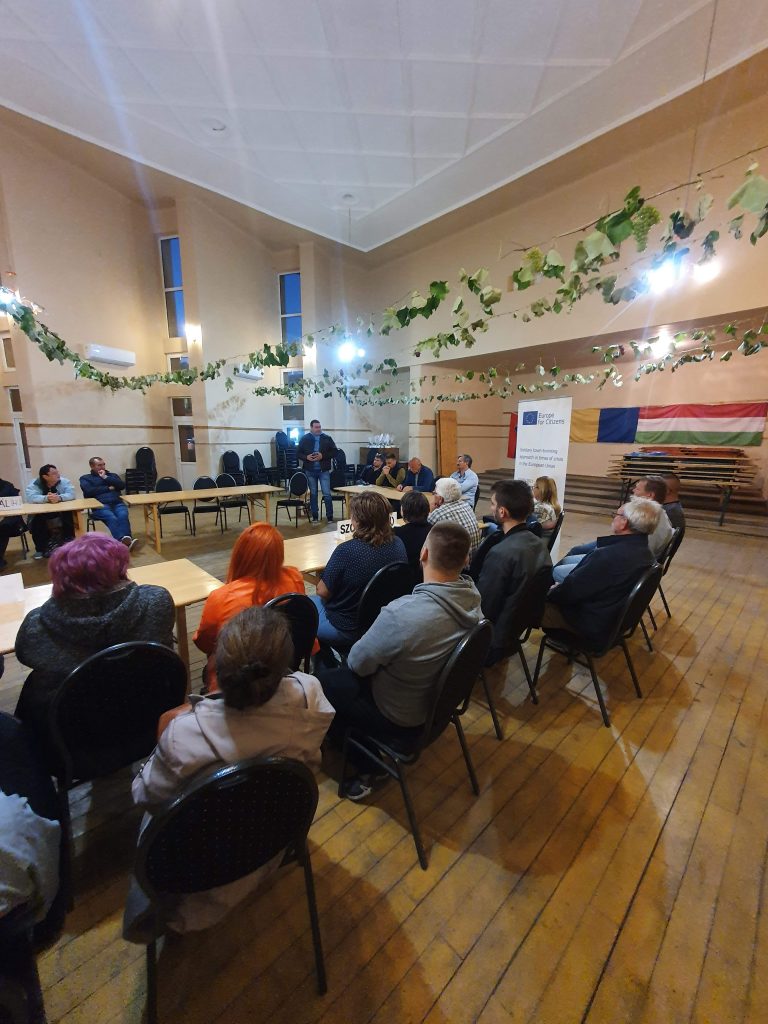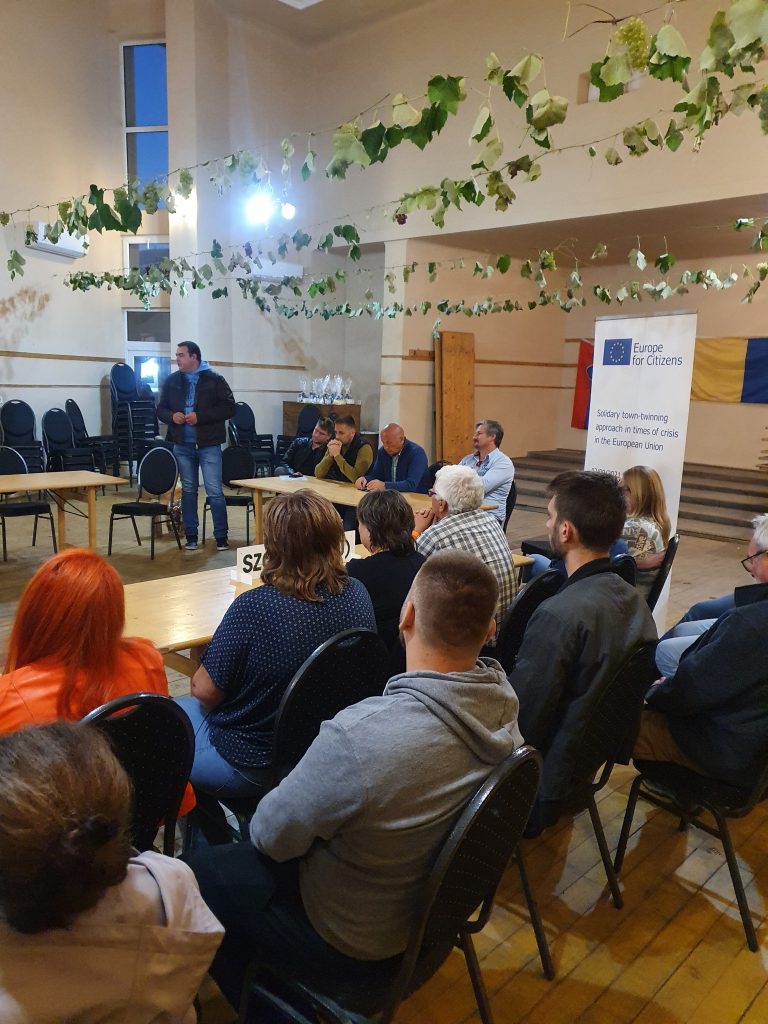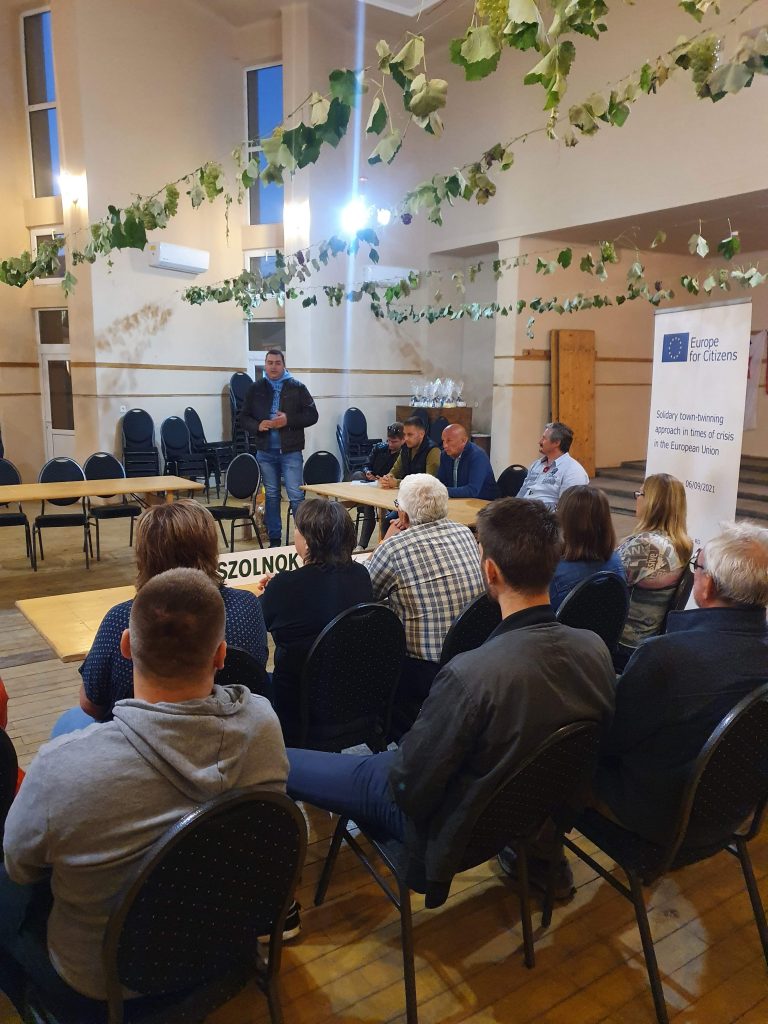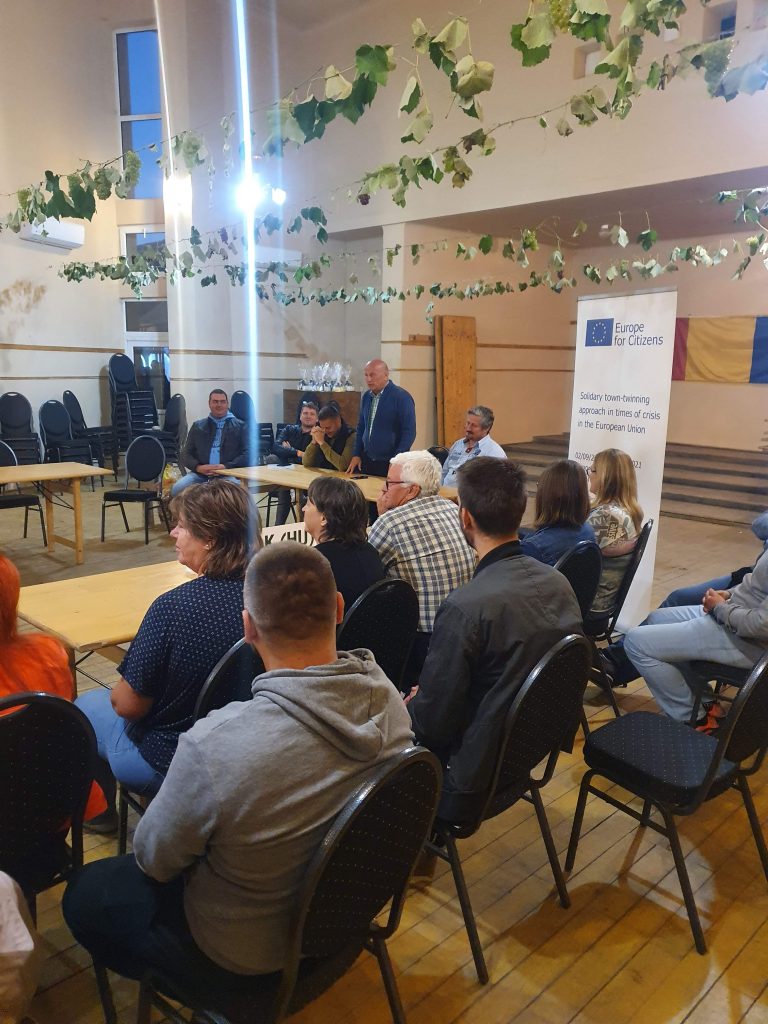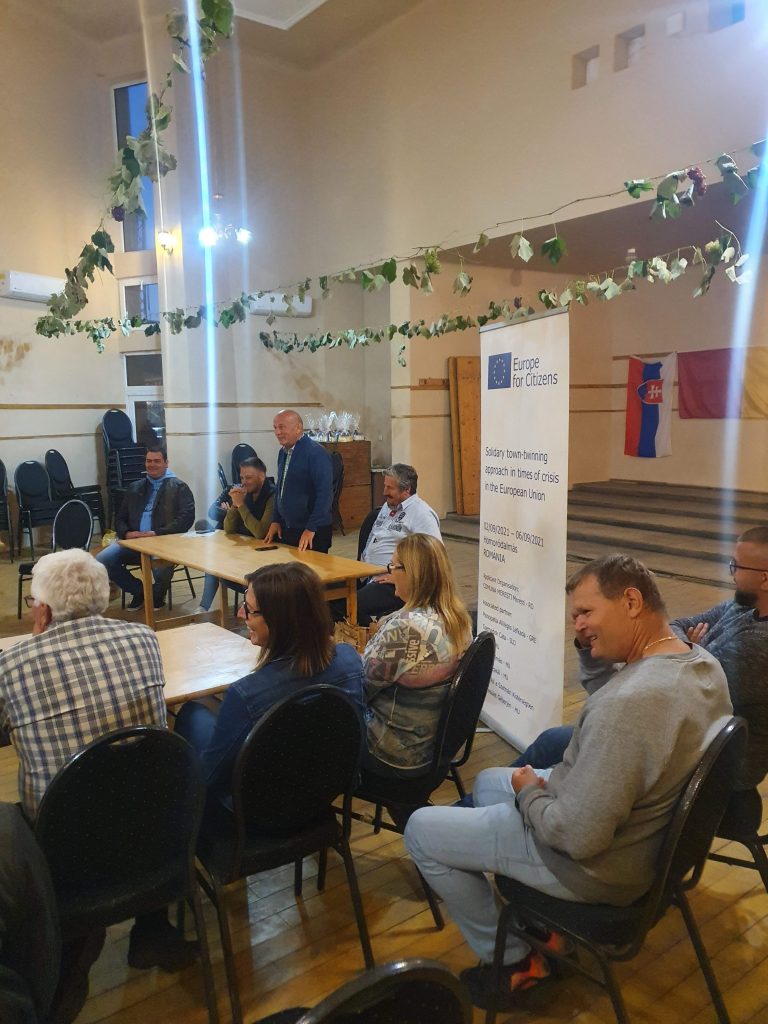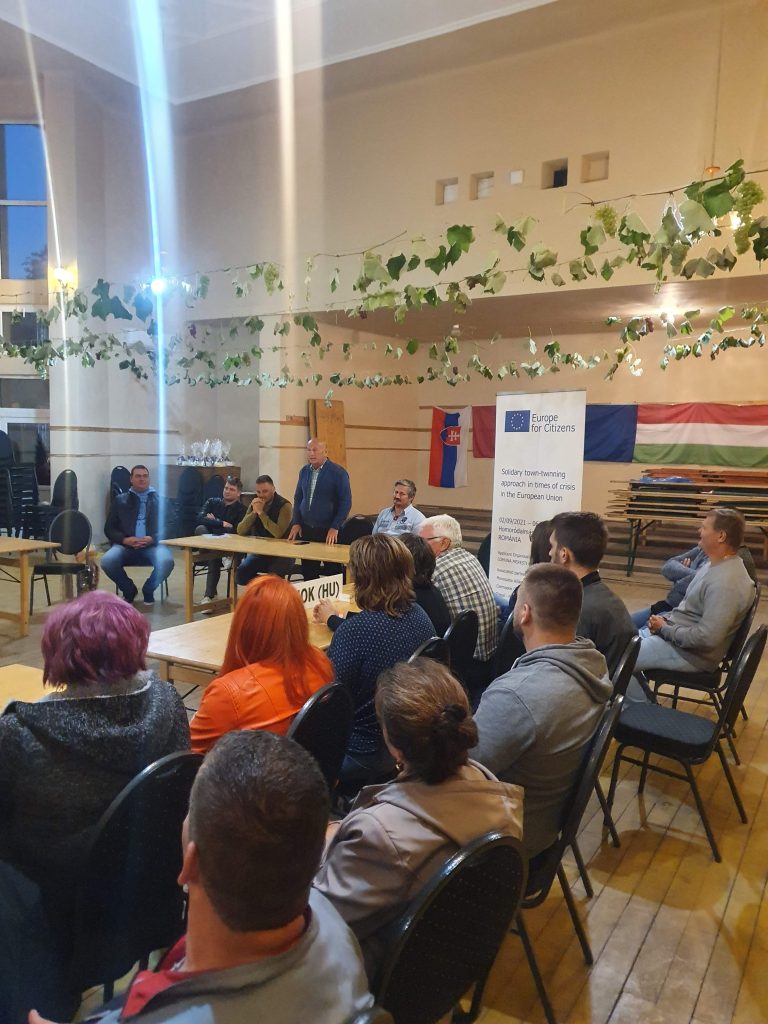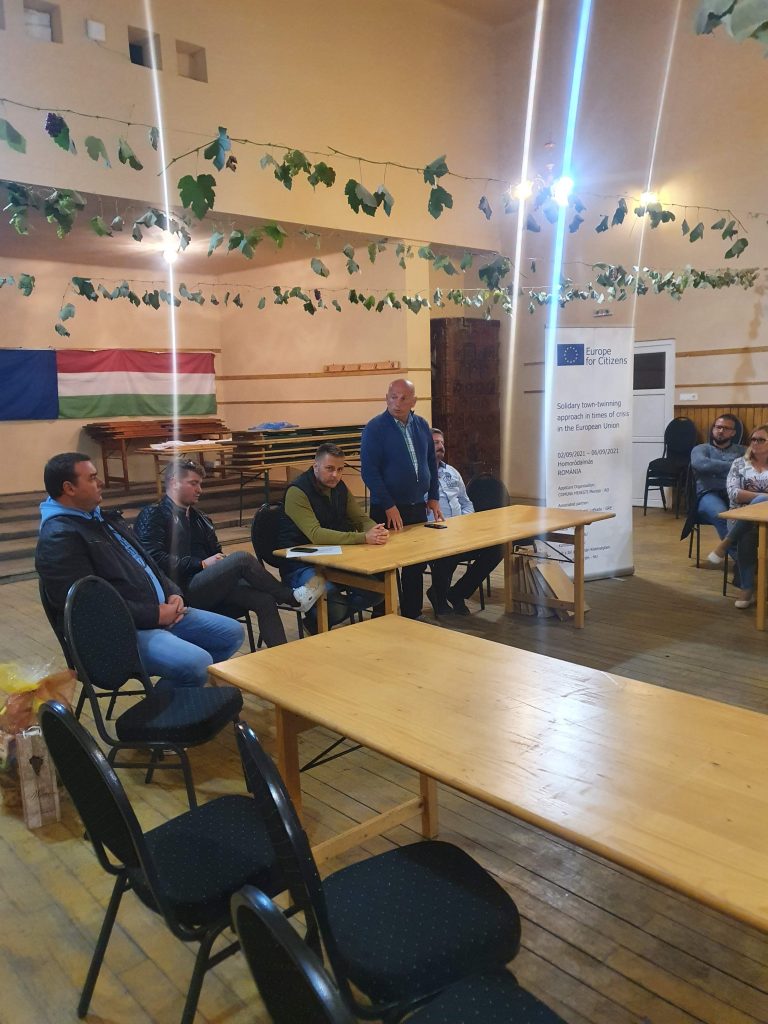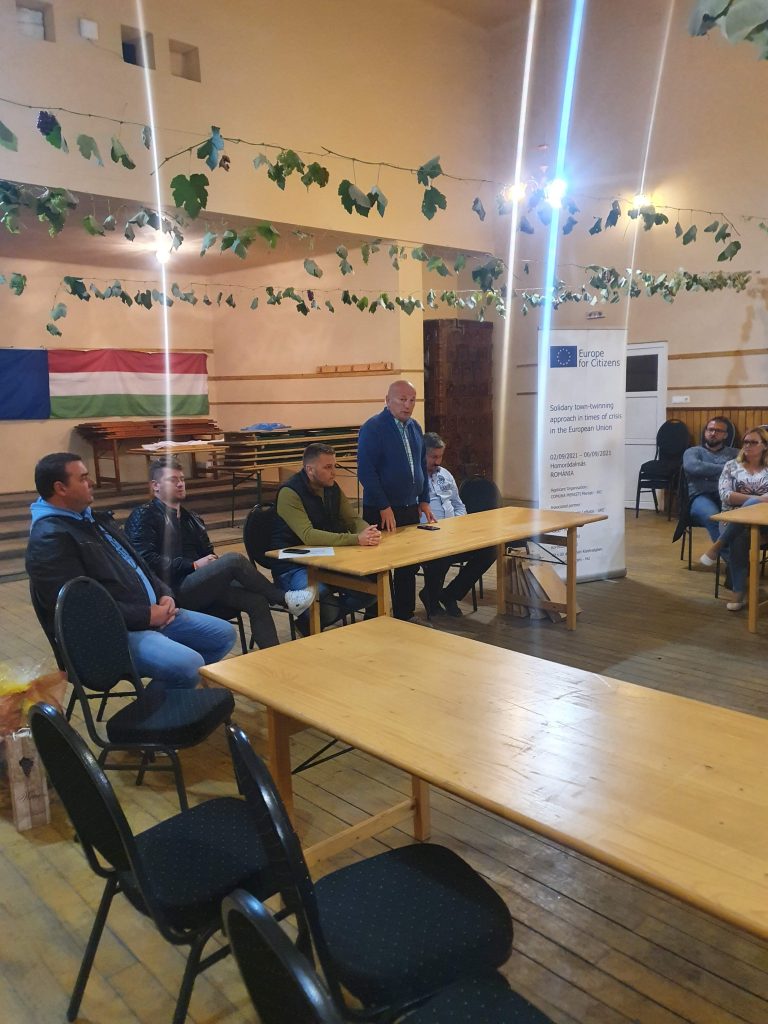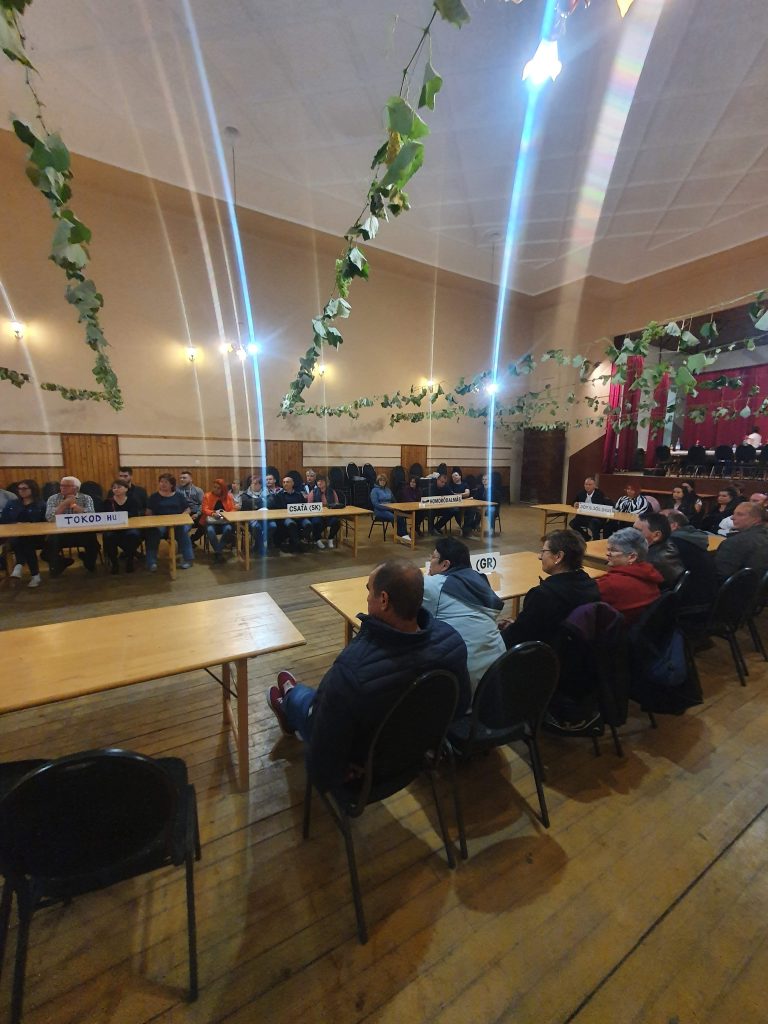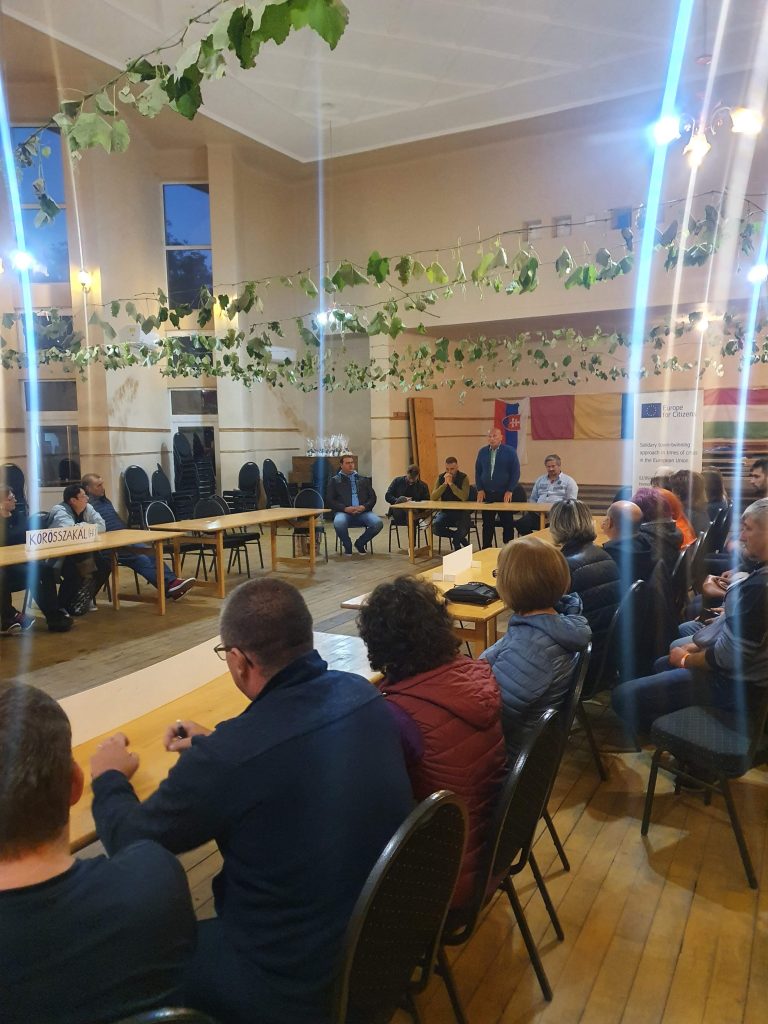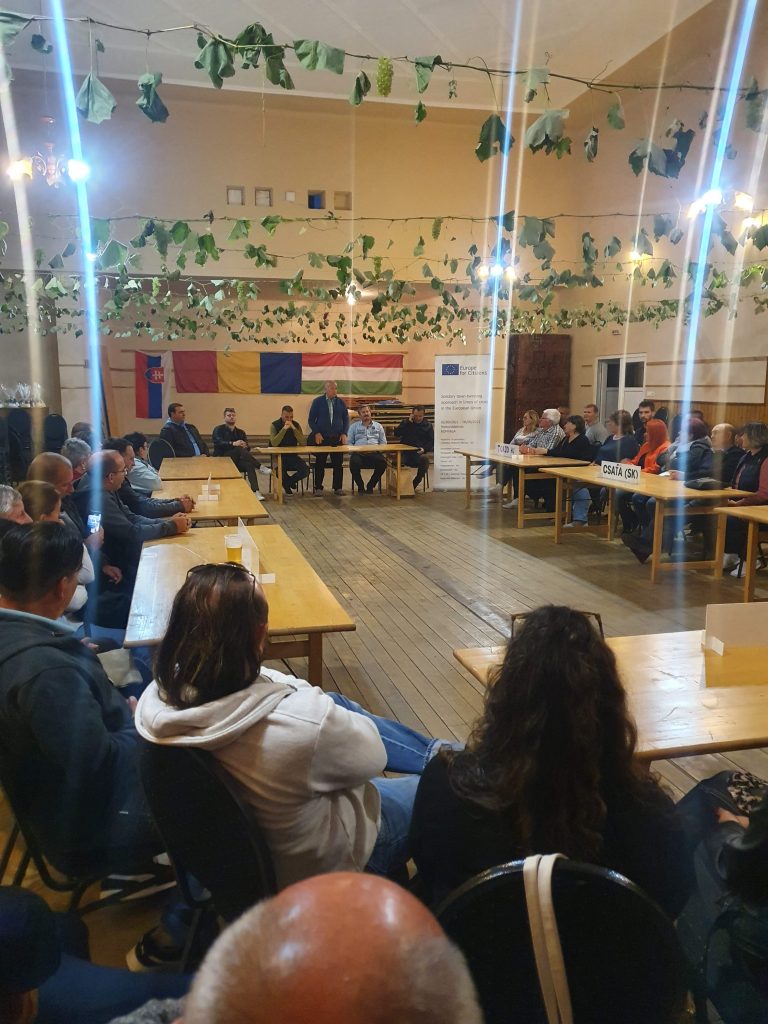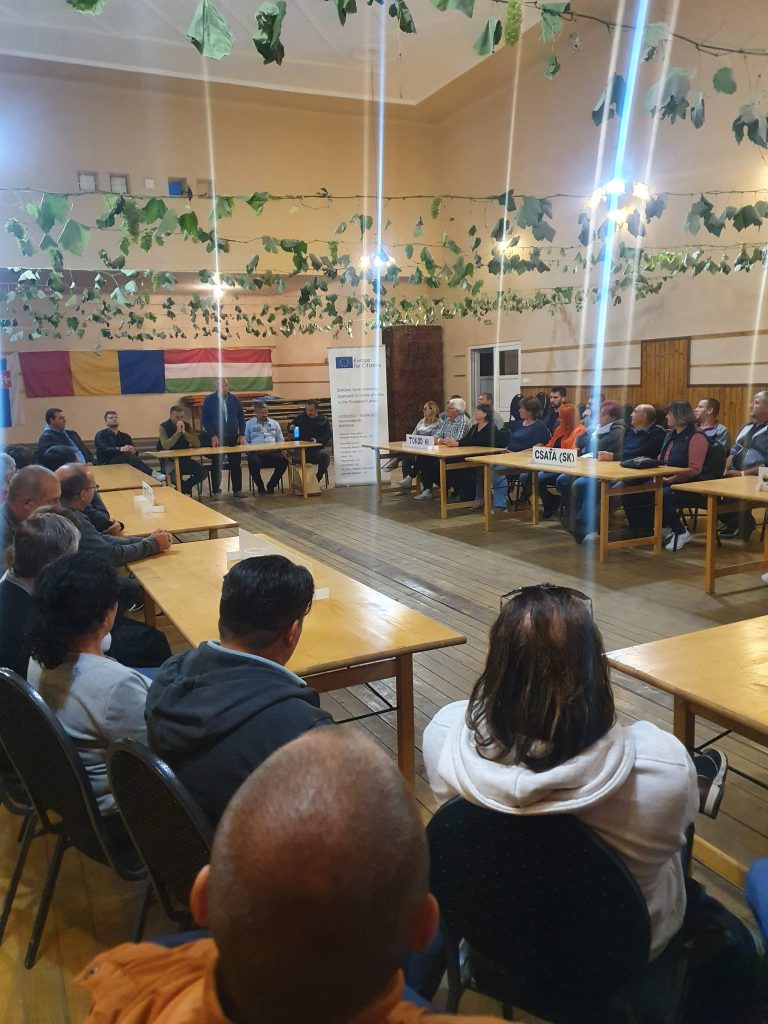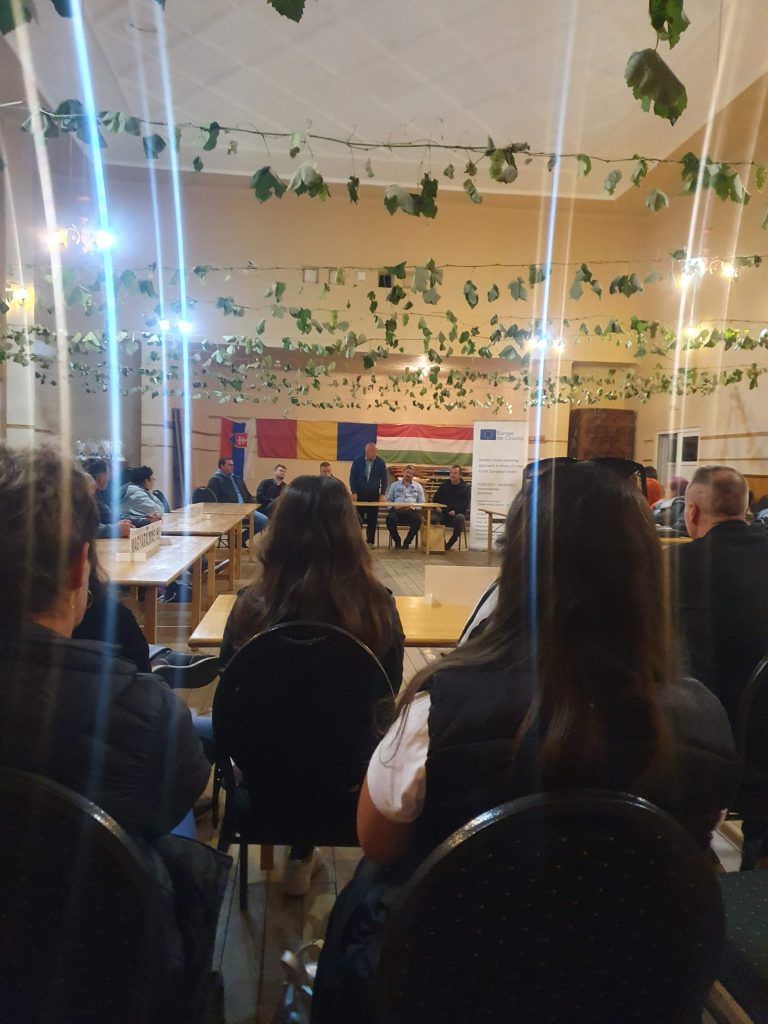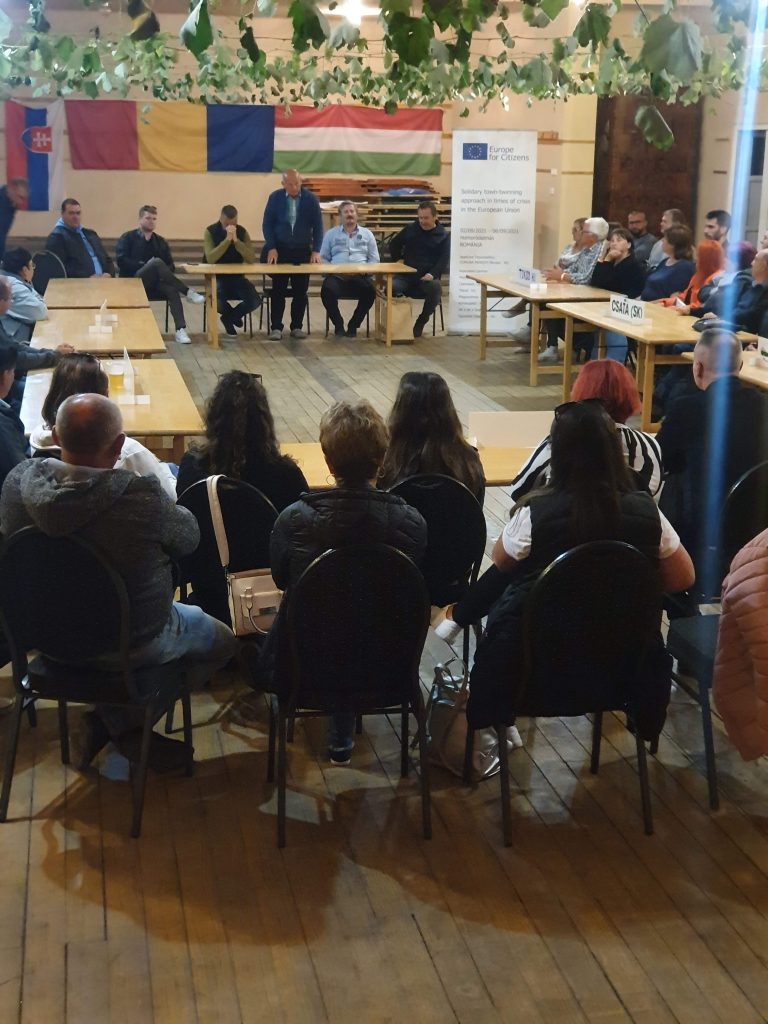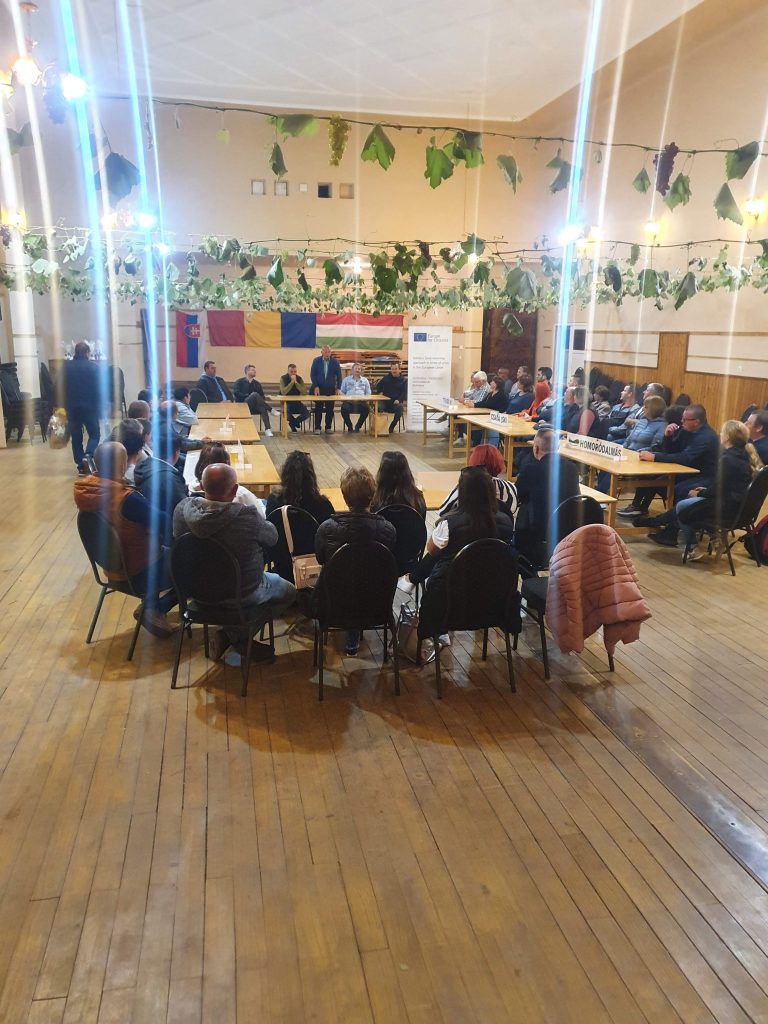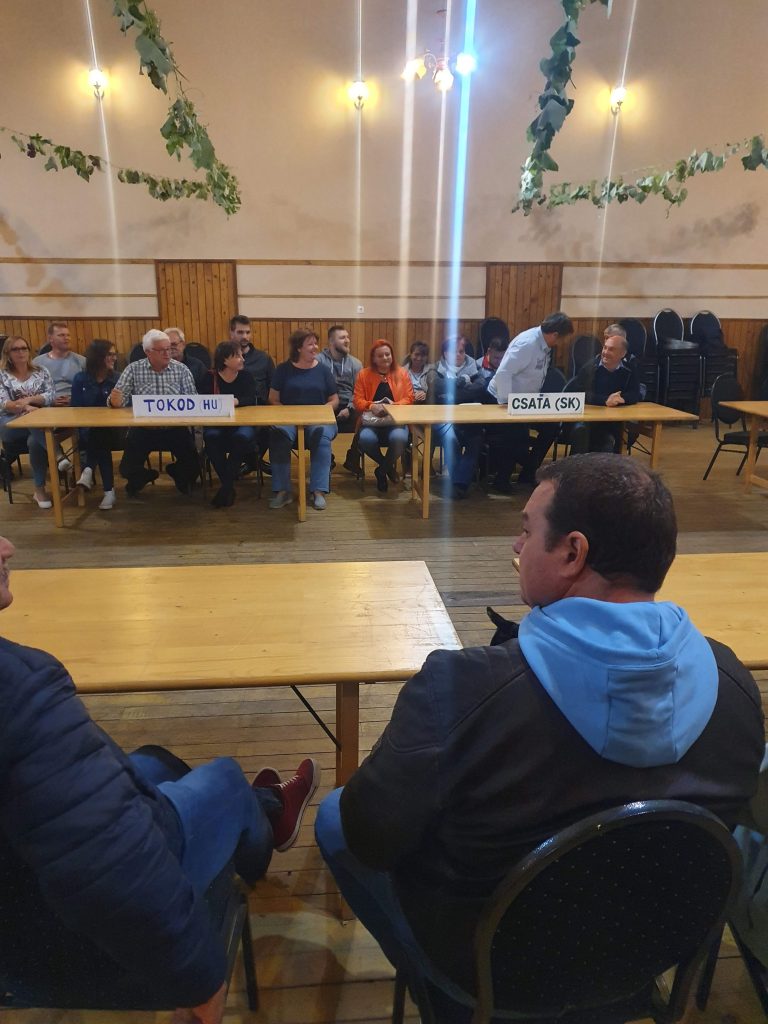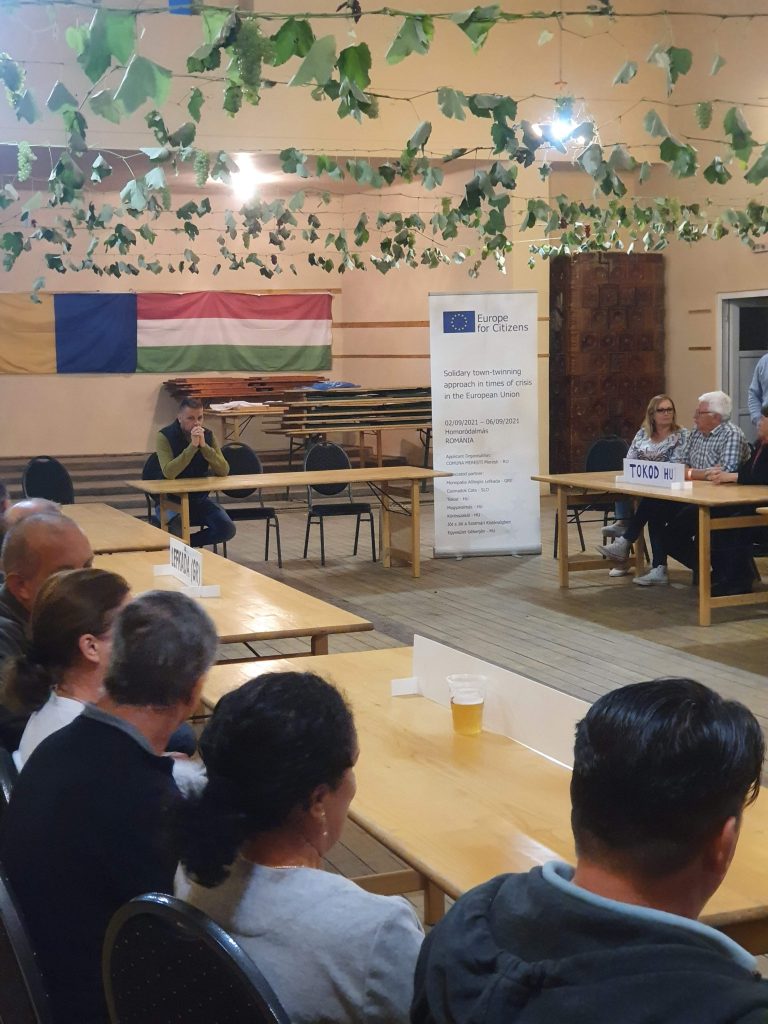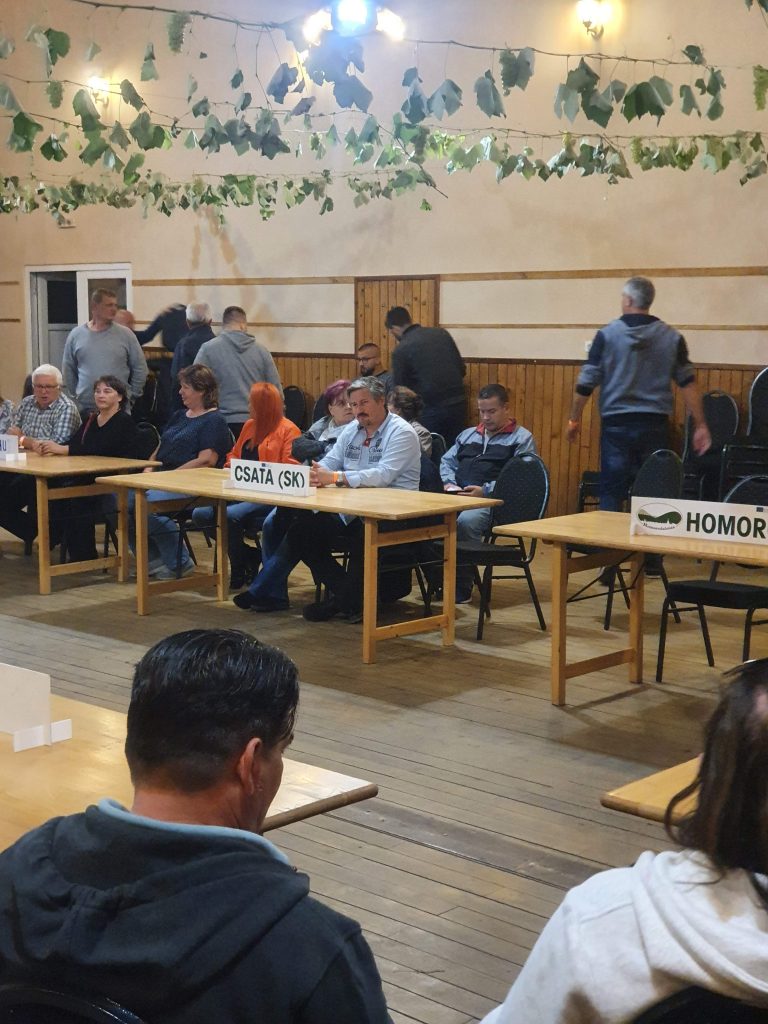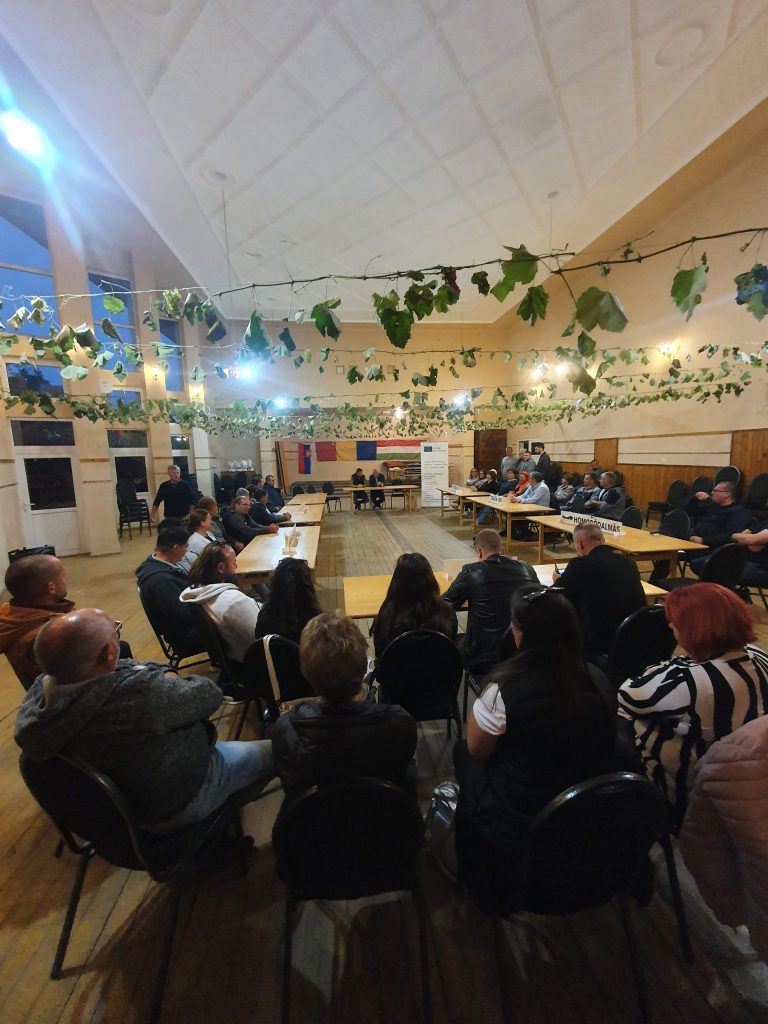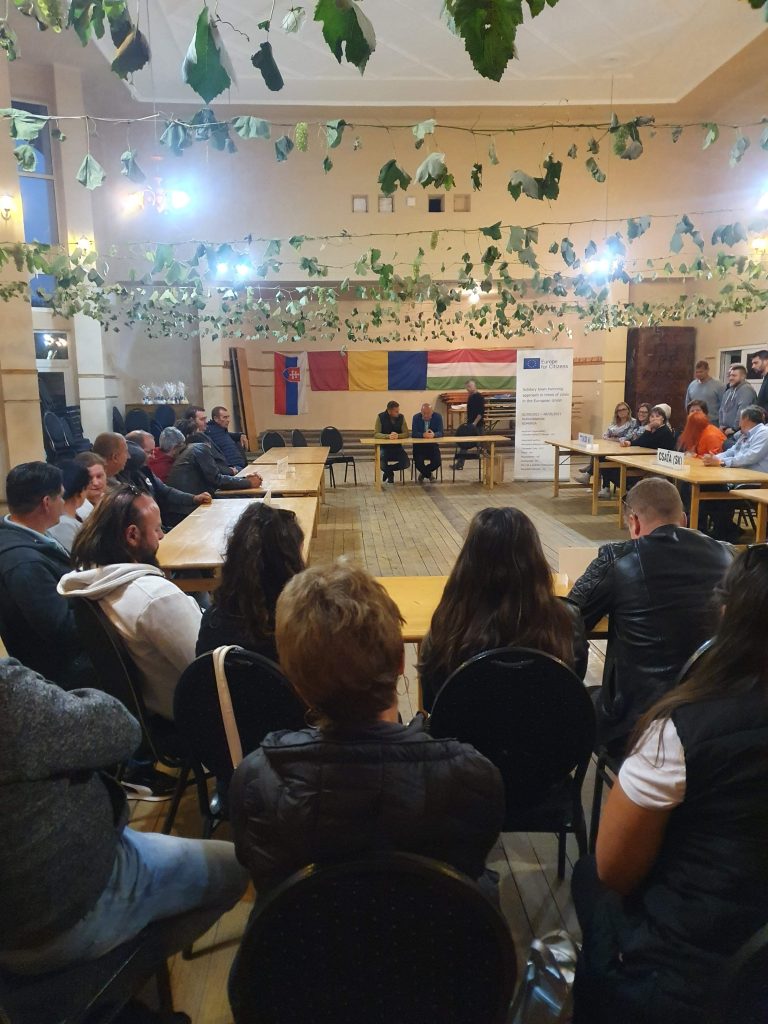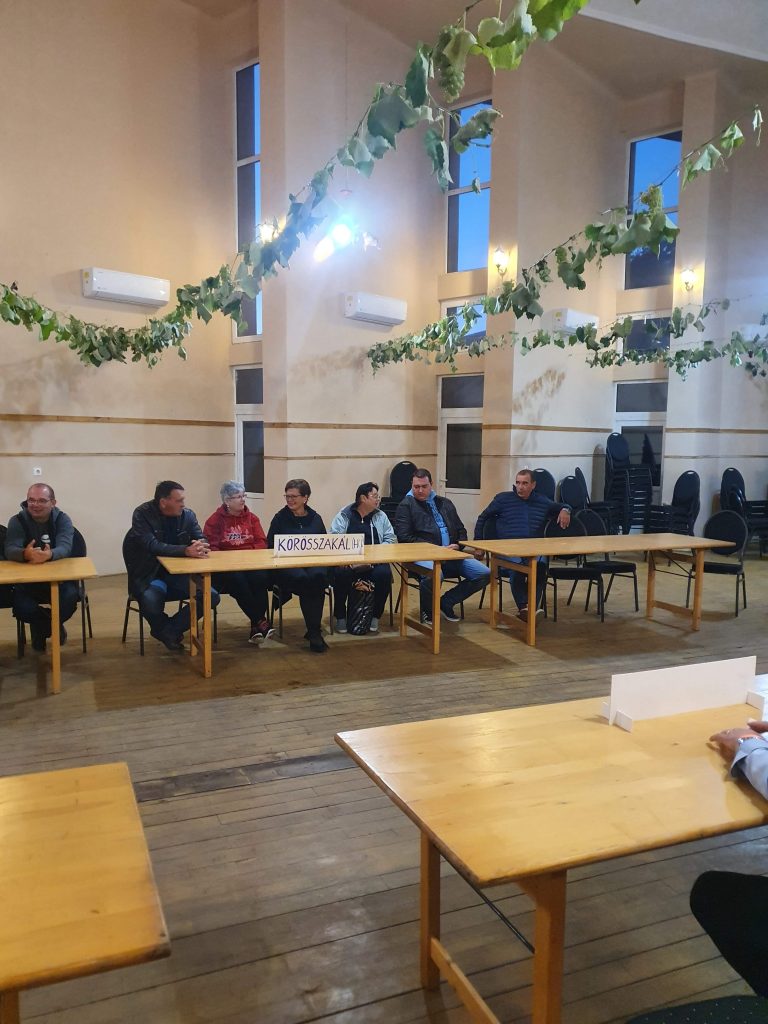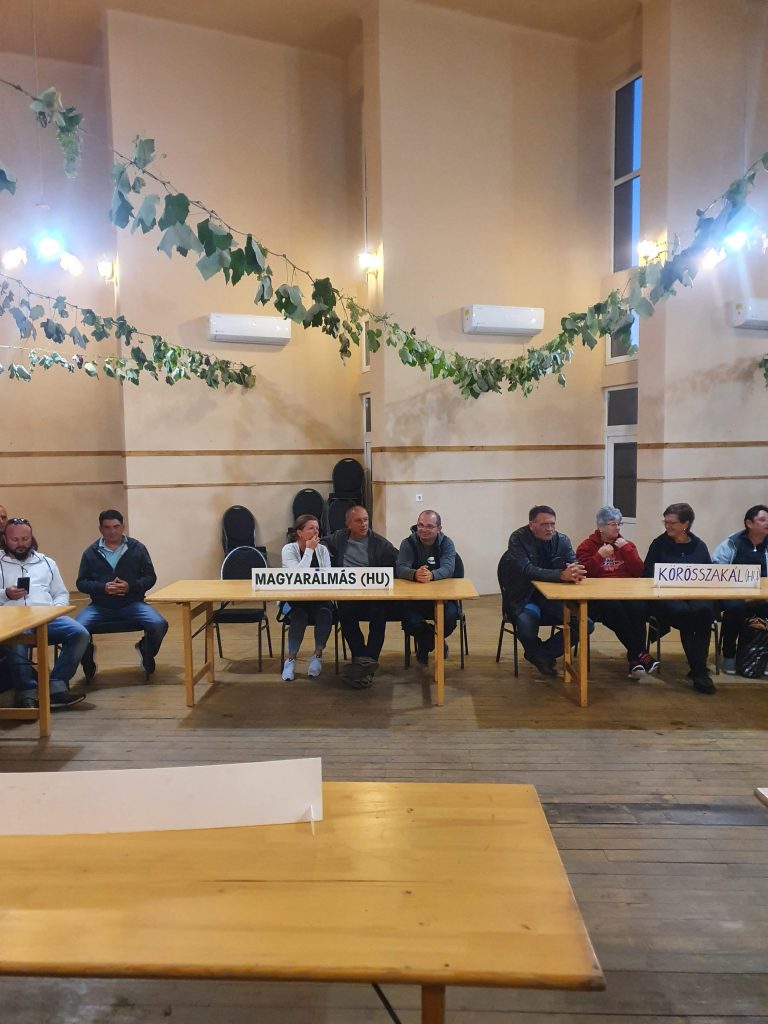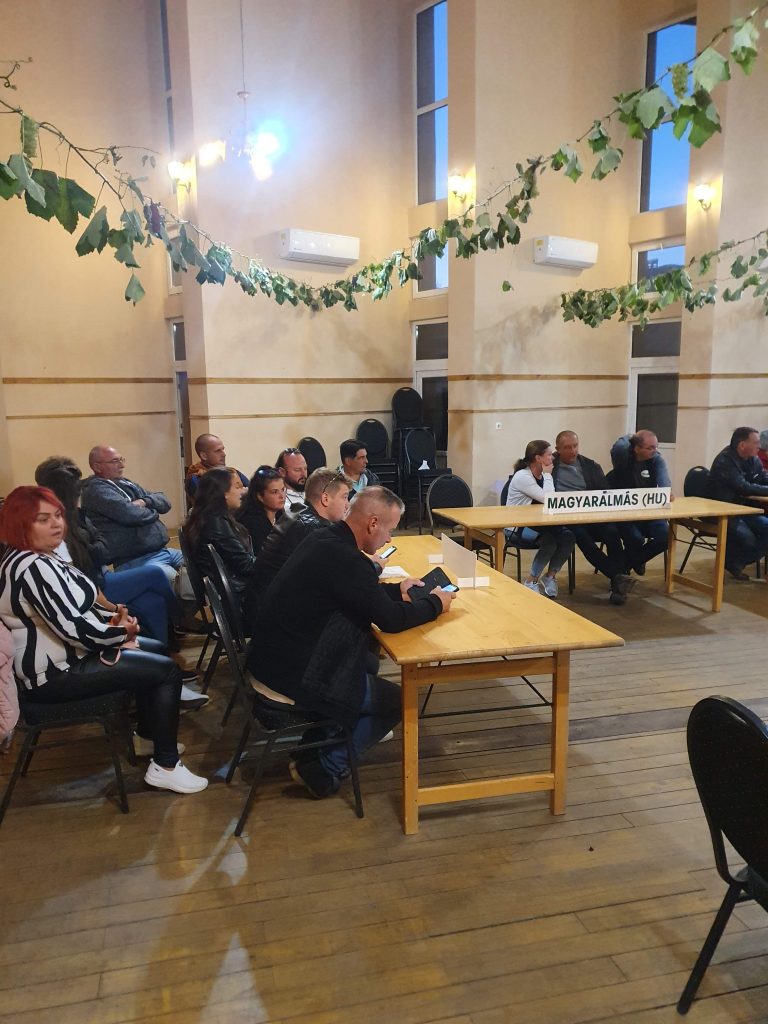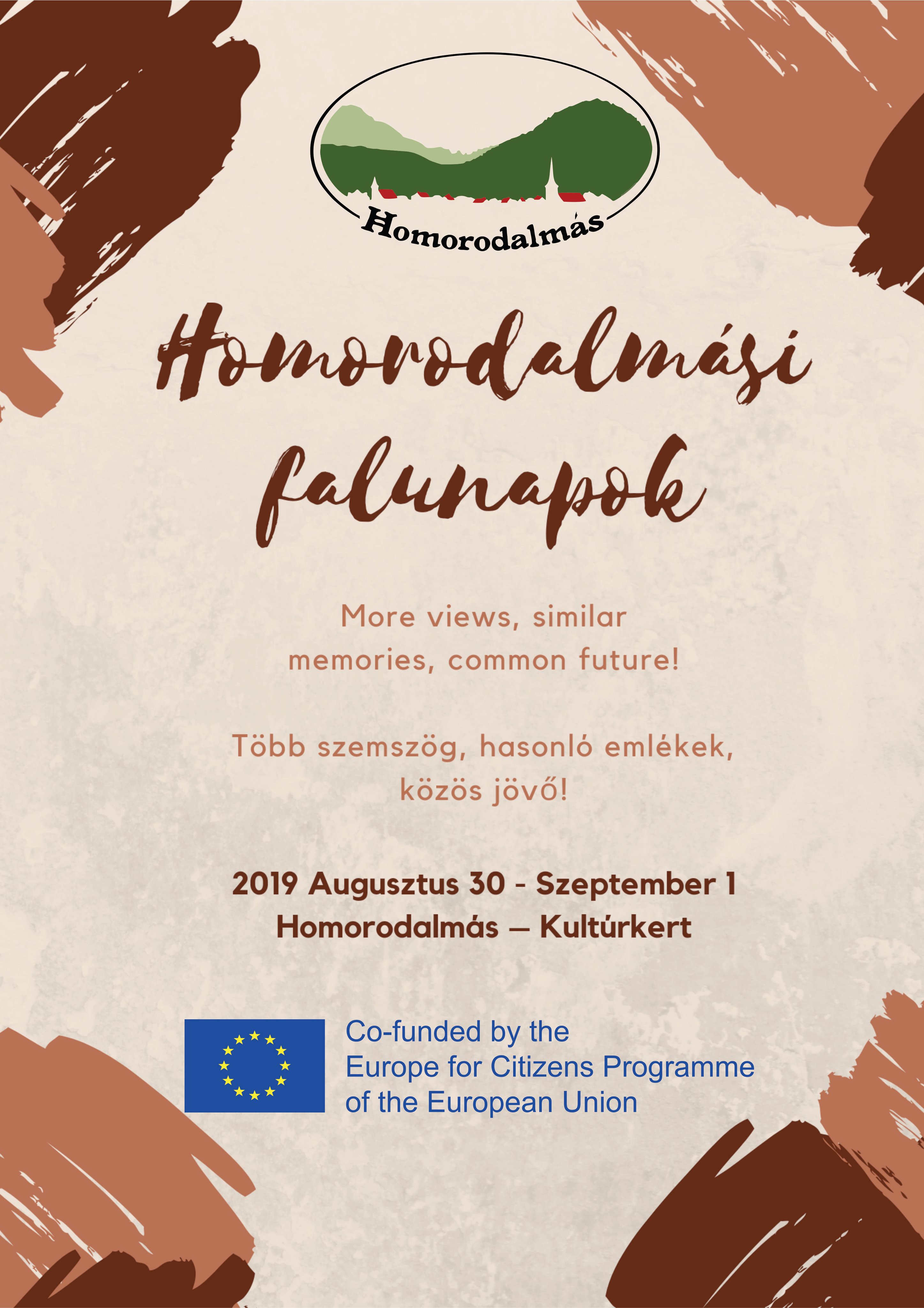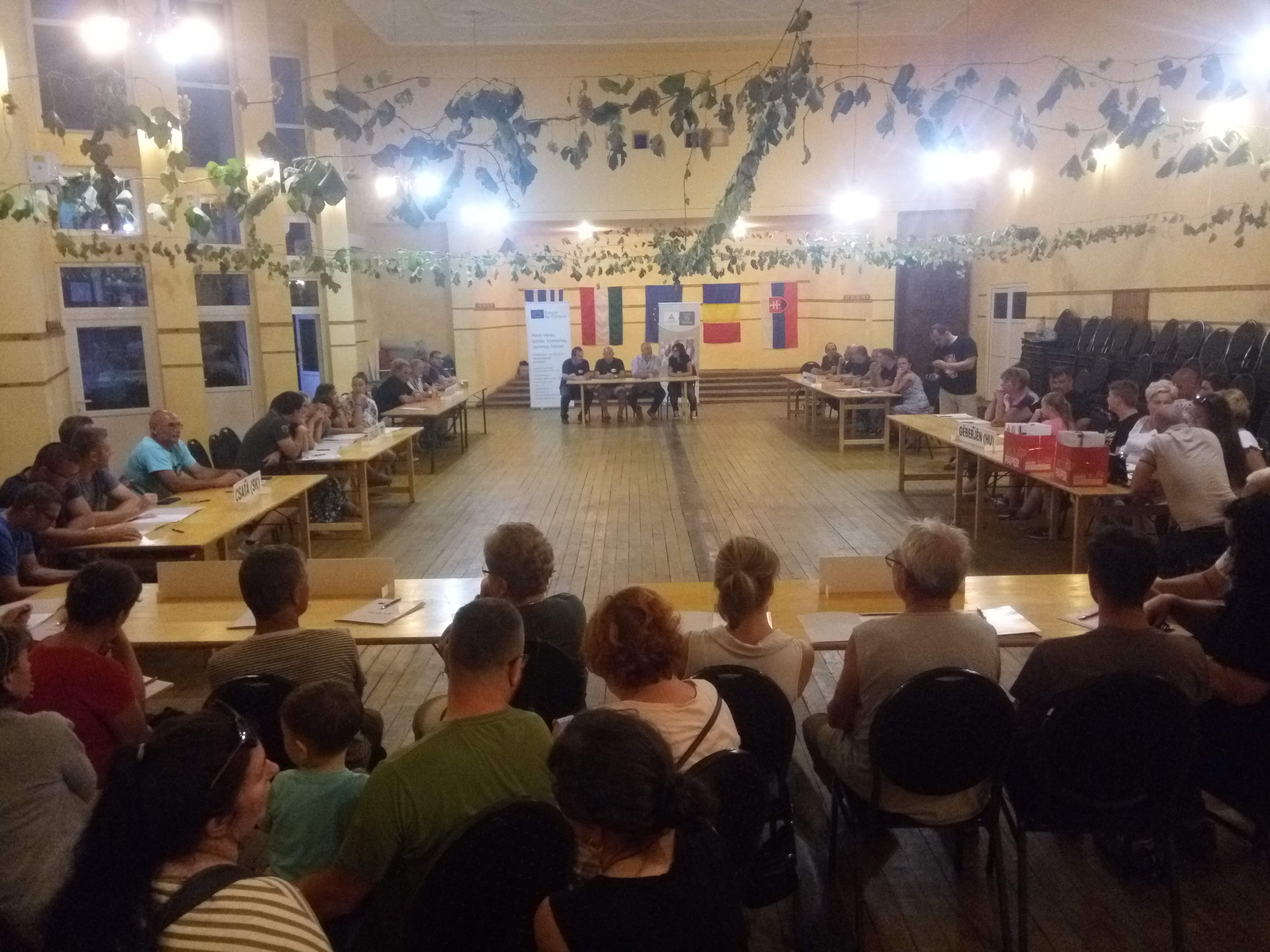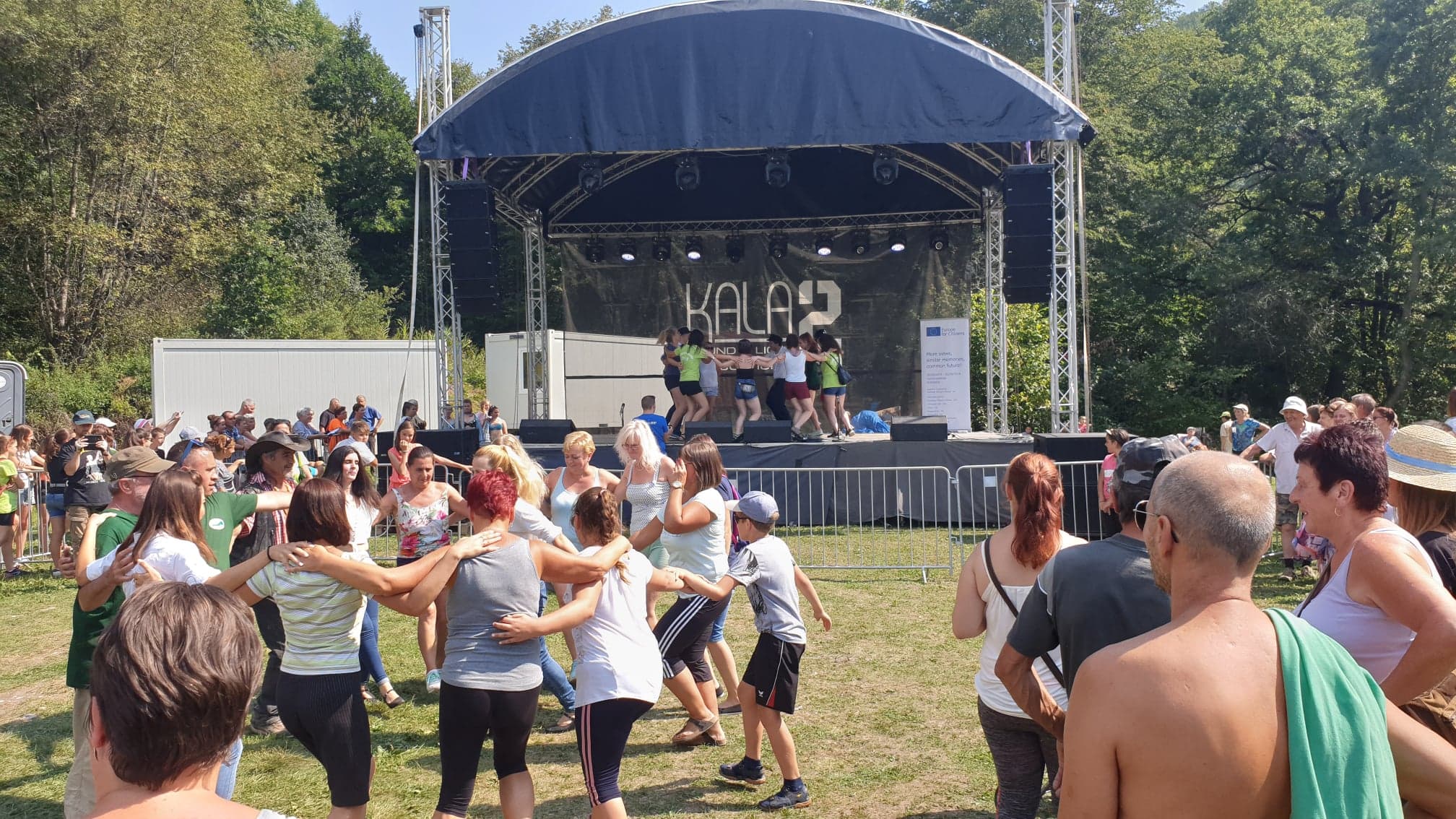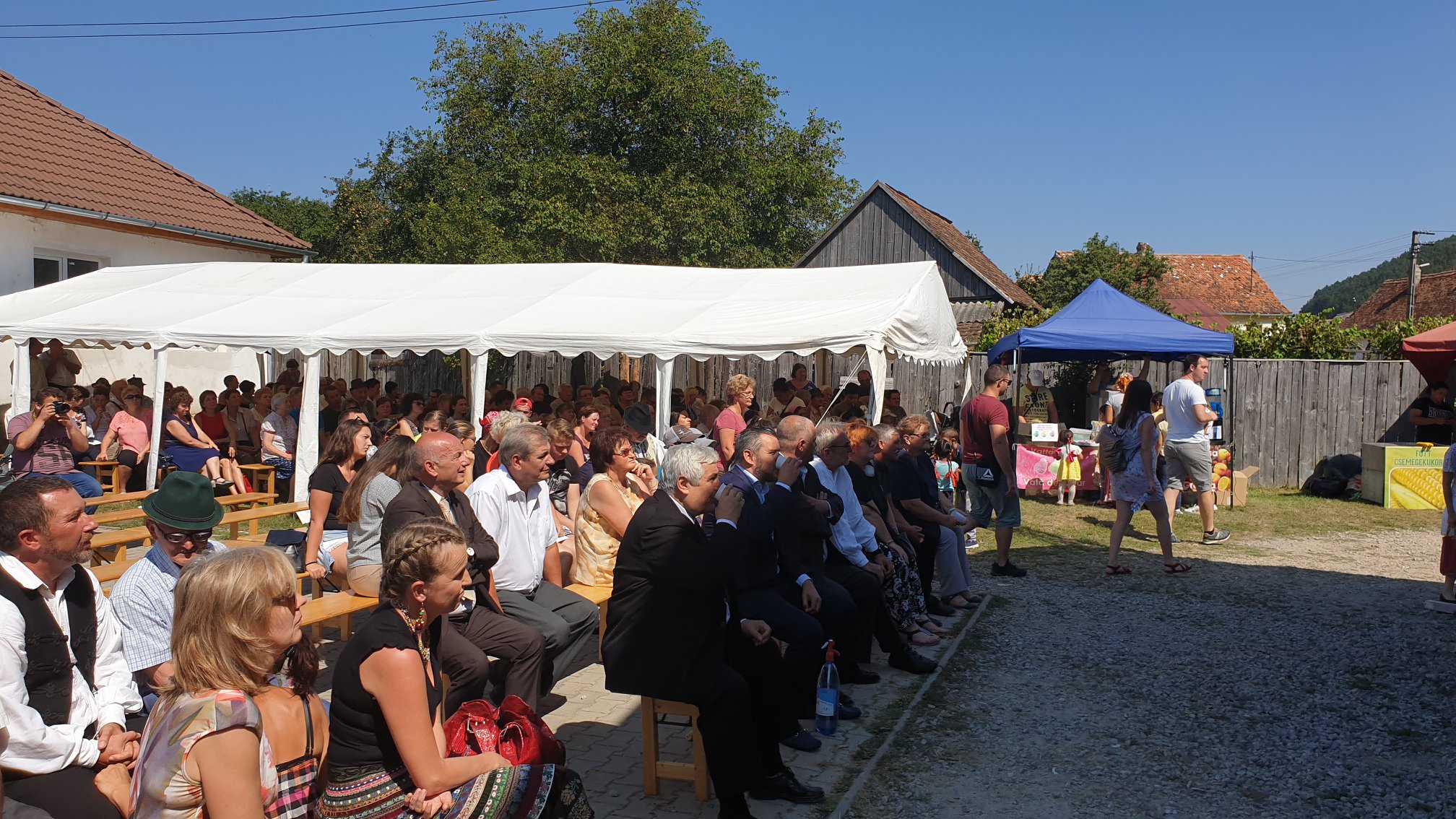The project « Solidary town-twinning approach in times of
European Union » was funded with the support of the European
under the Programme „Europe for Citizens”
| Applicable to the Strand 2 – Measure 2.1 „Town-Twinning” |
| Participation: the project involved 382 citizens, notably 200 participants from the locality of Merești, (Romania), 20 participants from the locality of Cata (Slovakia), 45 participants from the locality of Tokod (Hungary), 32 participants from the locality of Magyaralmás (Hungary), 40 participants from the locality of Körösszakál (Hungary), 45 participants from the locality of Géberjén (Hungary). Location/ Dates: the location of the meeting was Merești, Romania, between 02/09/2021 and 06/09/2021 Short description: The main aim of the meeting was to bring together delegations from localities from Romania, Hungary, Slovakia and Greece for getting to know the history of the EU, to understand better its goals and mission, for getting acquainted with being members of the community, for discussing issues the EU faces in times of crisis (COVID-19 pandemic, after Brexit times, etc.), for searching solutions for these problems and therefore to get aware of the importance of becoming active European citizens, for discussing the future of the community and for establishing mutual cooperation. On the first day, 03/09/2021 after the arrival day, the program and the aims of the meeting were presented by the mayor of Merești, then the twinned towns presented the beneficial effects of the adherence of their countries to the EU, especially from their point of view (projects and investments made in their community). They also spoke about their localities in general (culture, tourism, etc.). The kids took part in diverse playful programs in order to get acquainted with the history and basics of the European Union. The young people were able to take part at workshops organized by the Youth Association from Transylvania in order to get to know the Erasmus Plus and the European Solidarity Corps Programme. The history of the EU was also presented, especially the key moments, past challenges and the adherence of the states. The day ended with the folk-dance presentation of the participating localities. The second day, 04/09/2021, started with a presentation and workshop regarding the challenges and issues the EU faces: Post-Brexit period, migration crisis, Eurosceptic manifestations, etc. The participants tried to find solutions for these. The Covid-19 pandemic was tackled during a separate activity (consequences, measures taken by EU to ameliorate its economic, social, health-related and other effects). These were followed by a common exposition of local products, artworks of local artists and photos. In the night, the delegations sang the representative folk songs of their localities, therefore the participants were able to get aware of the importance of preserving multiculturalism. On the third day, 05/09/2021, the delegations cooked the representative foods of their settlements, which were evaluated by a jury. After, the participants discussed whether the EU can survive in its current form in the long run or whether some transformation will occur, taking into account the actual and future challenges. After that, the delegations worked out future possible cooperation possibilities in the field of culture, tourism and economy. The event ended with a charity concert and with closing speeches held by the representatives of the delegations. |


